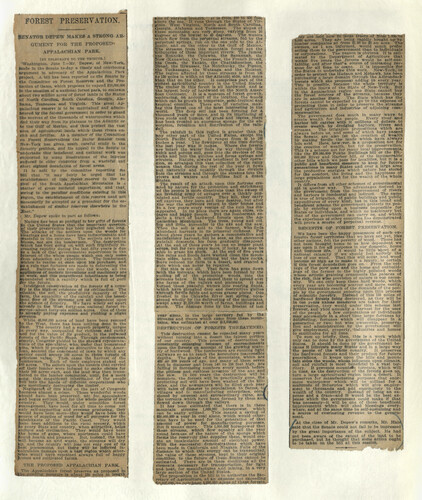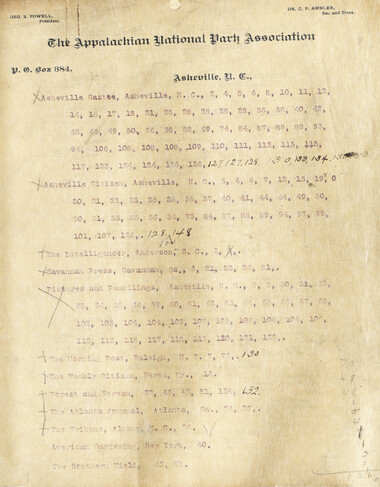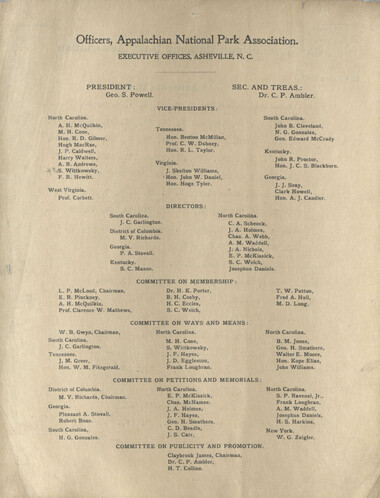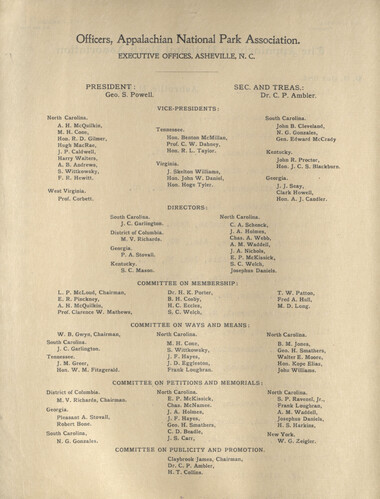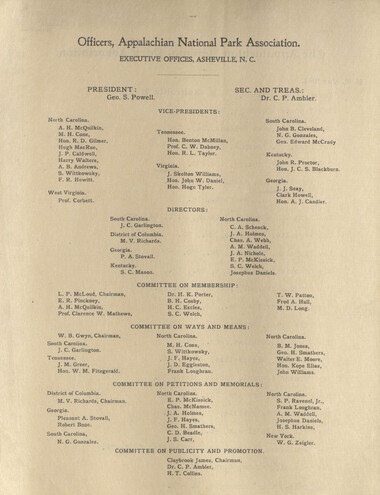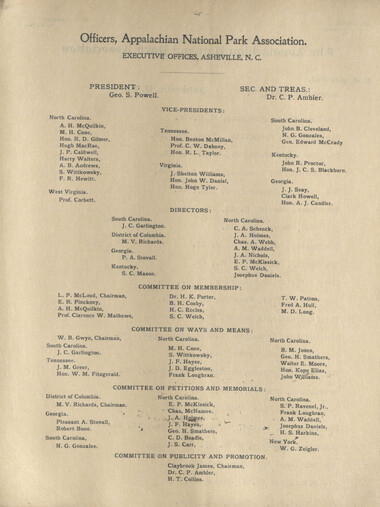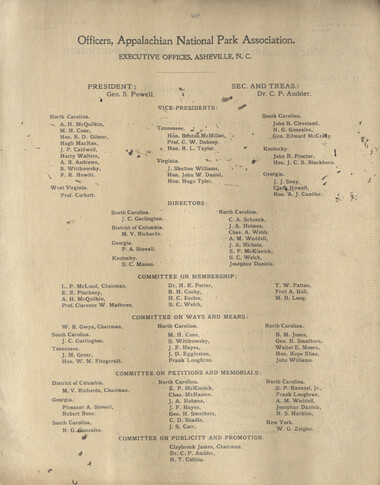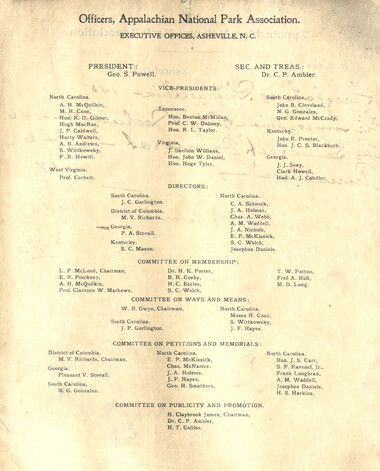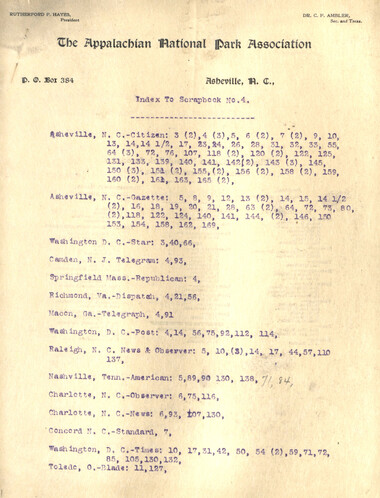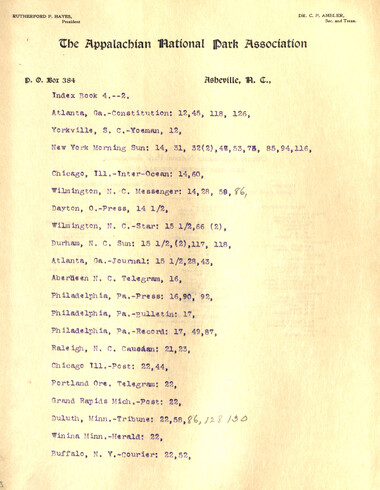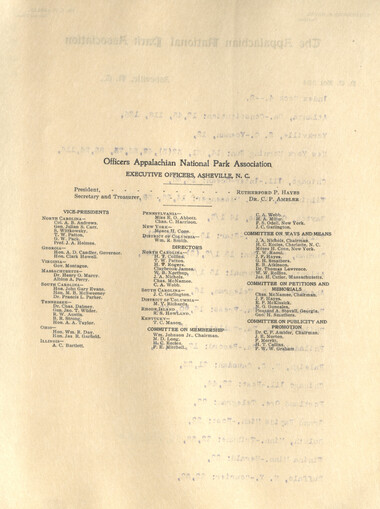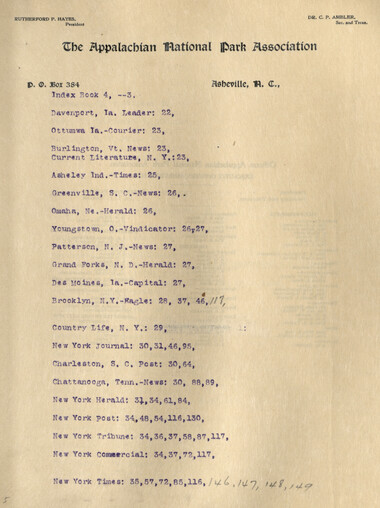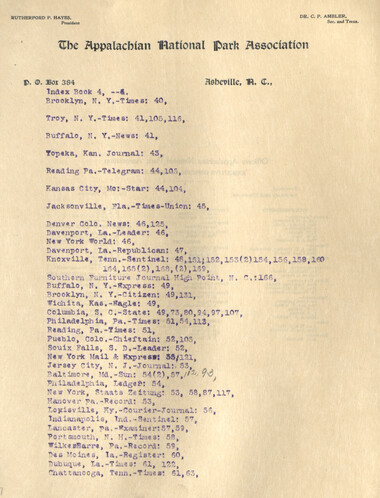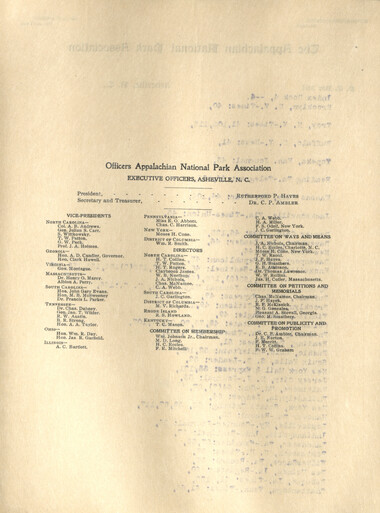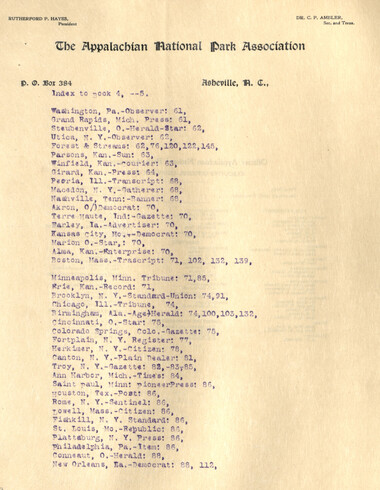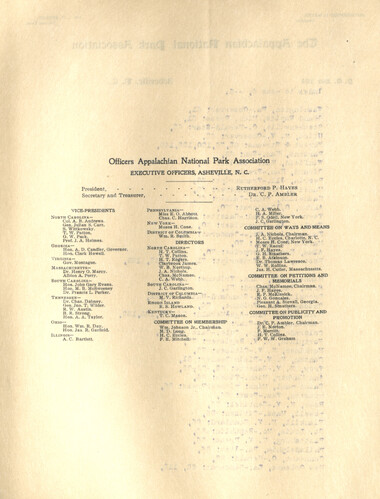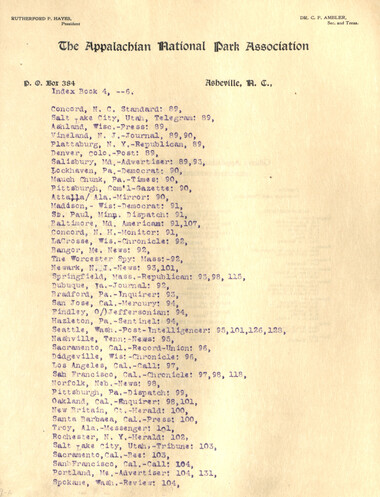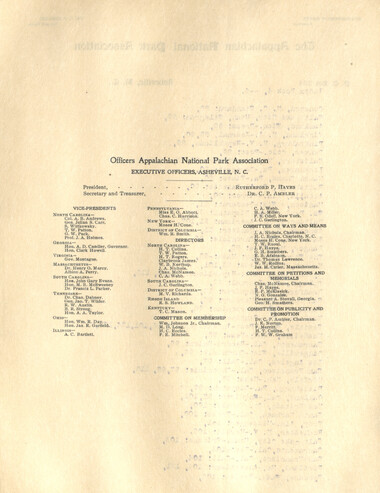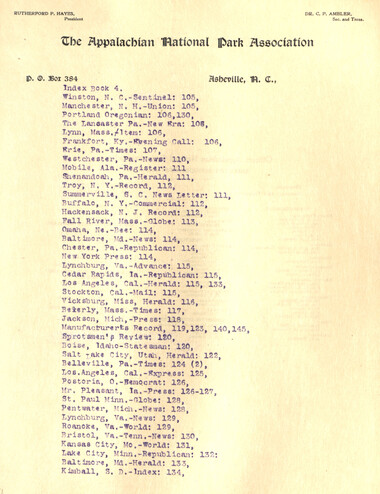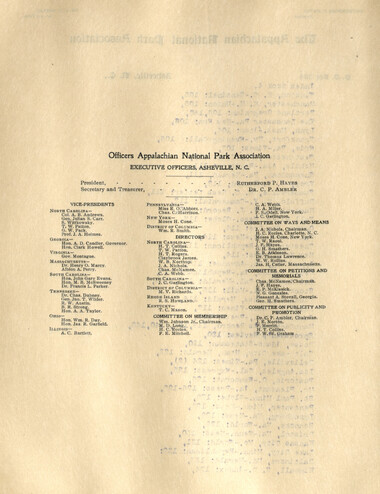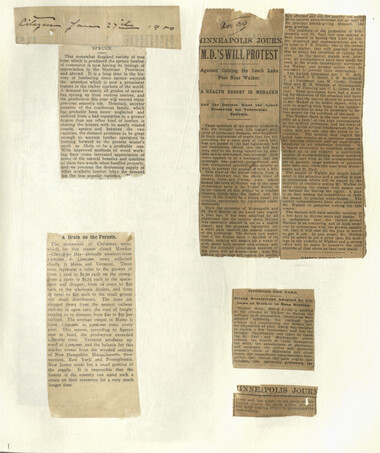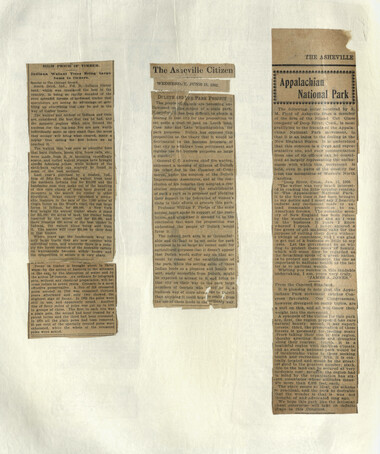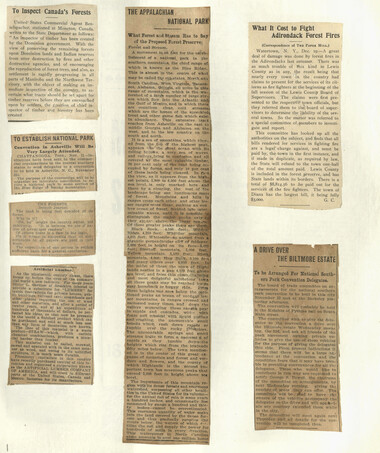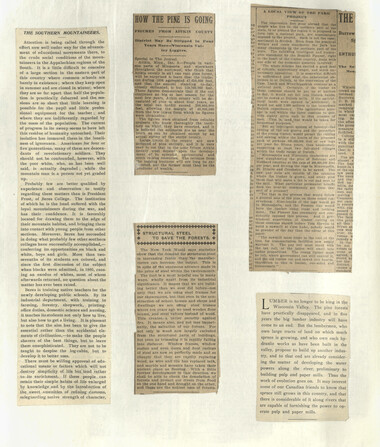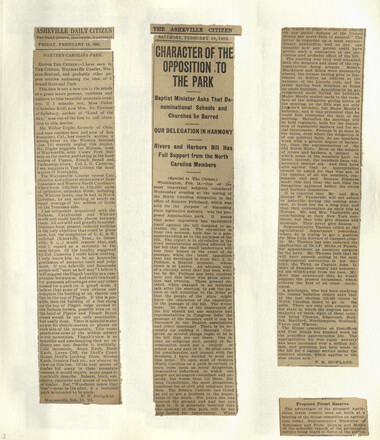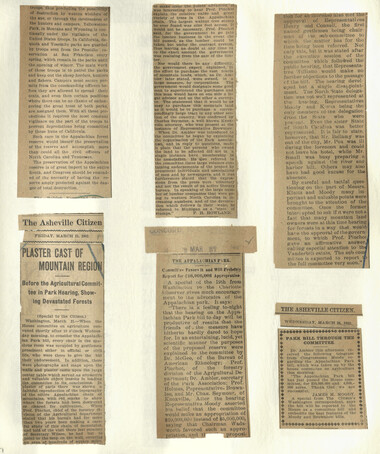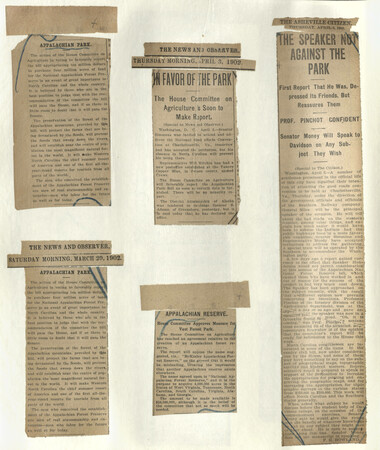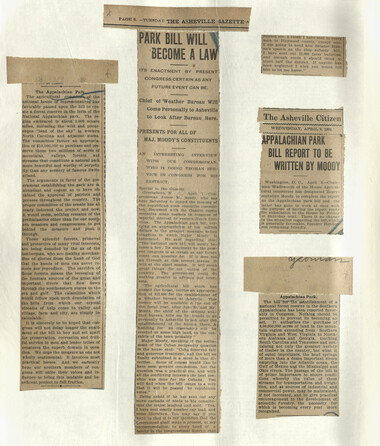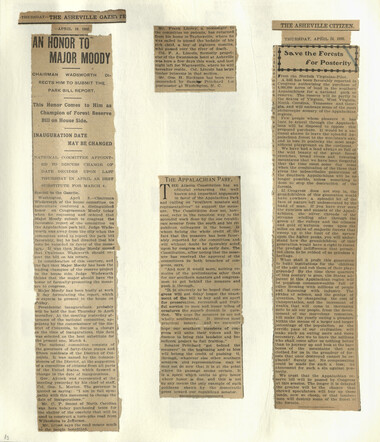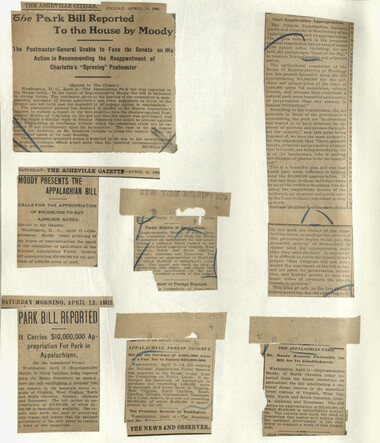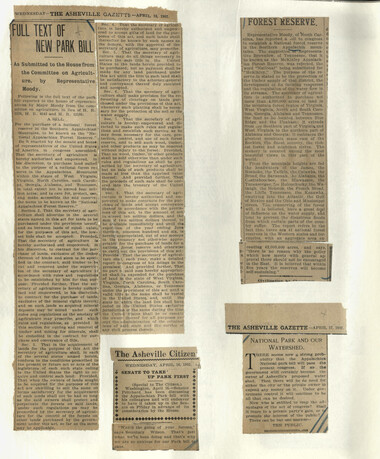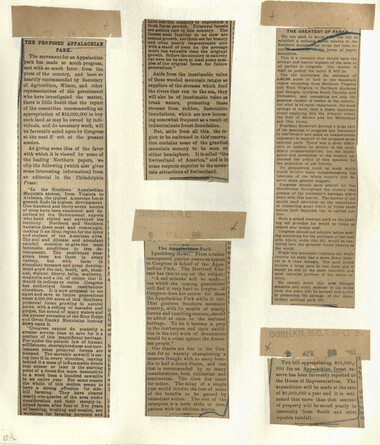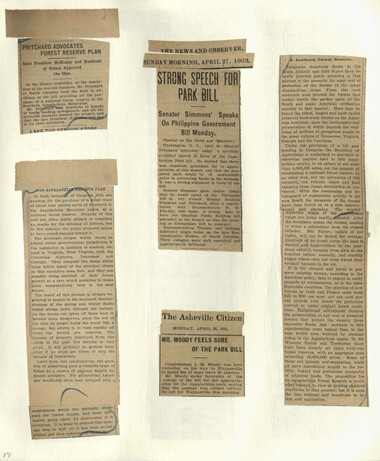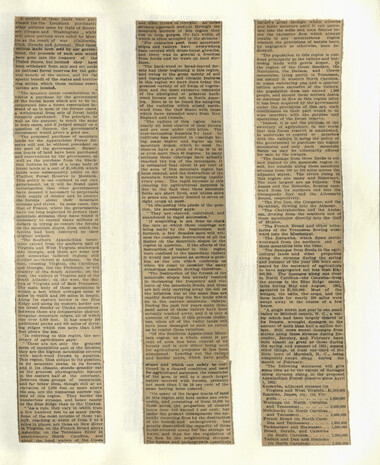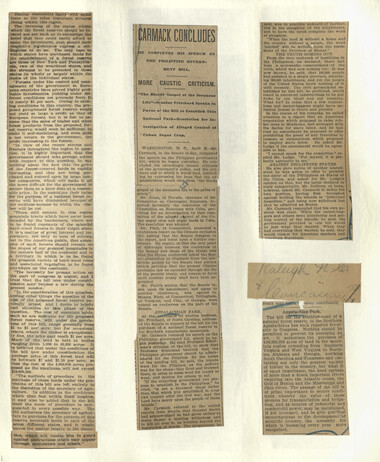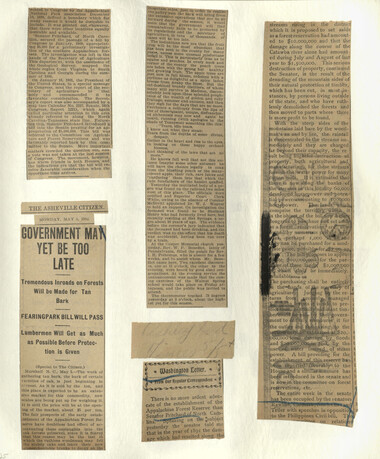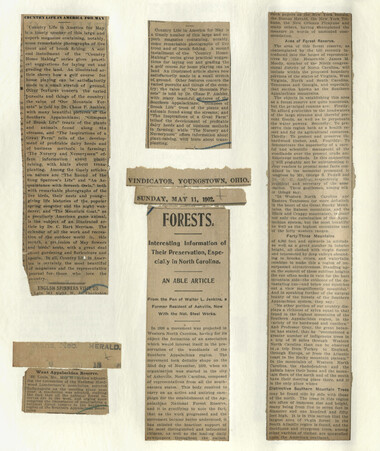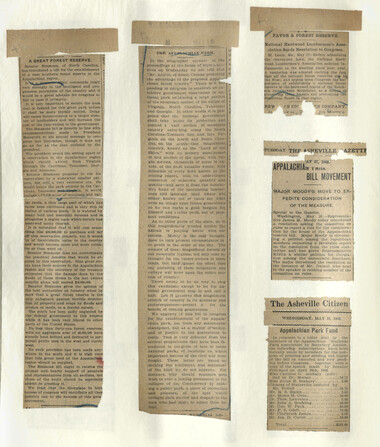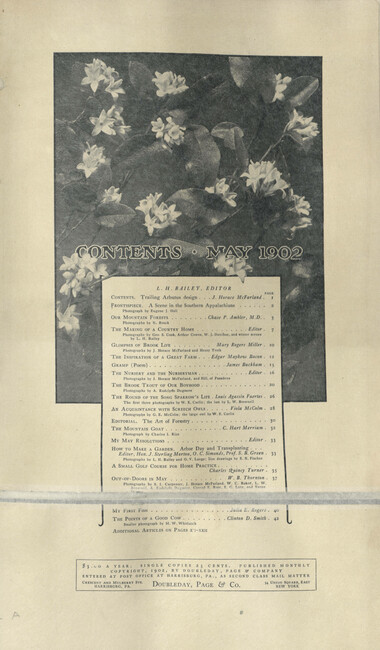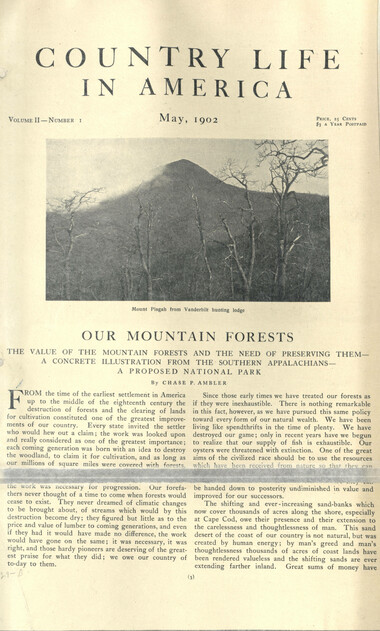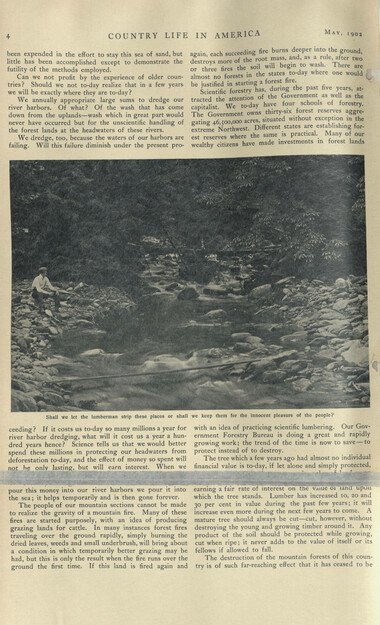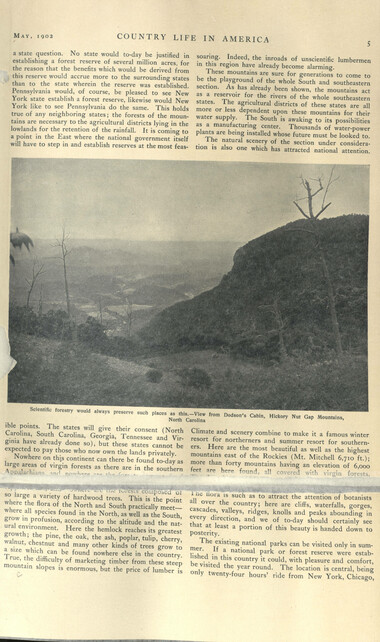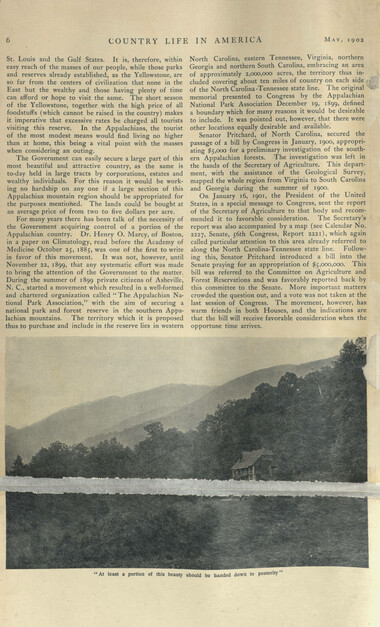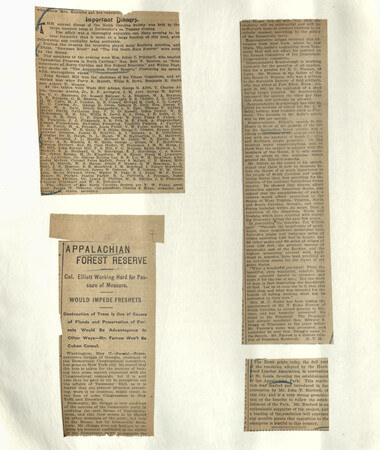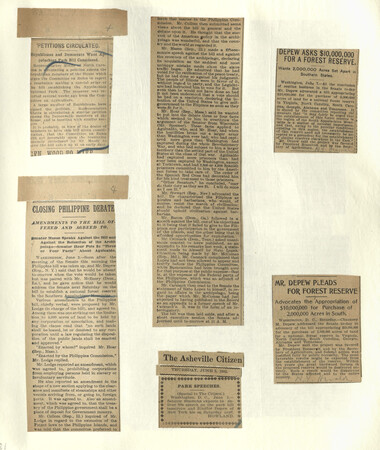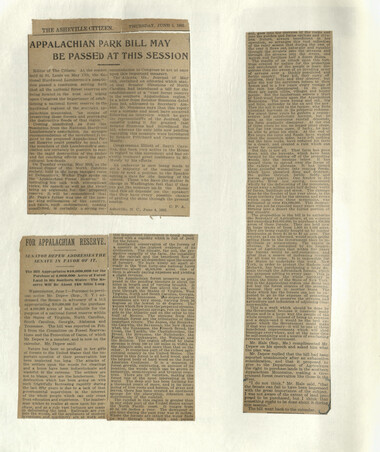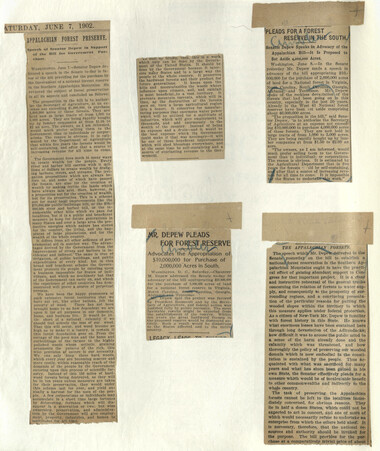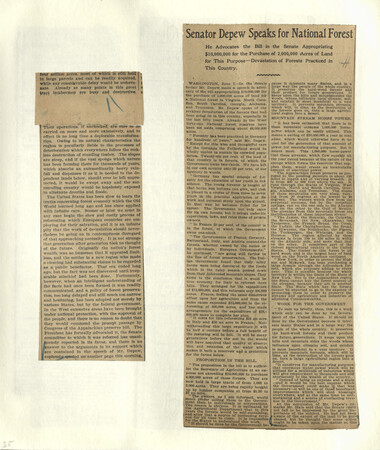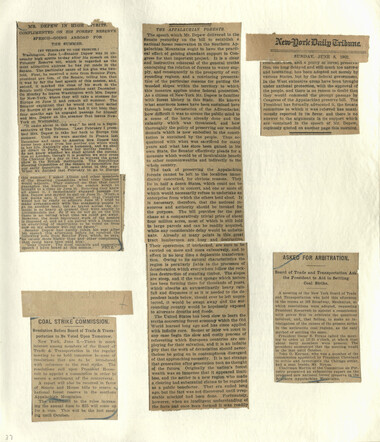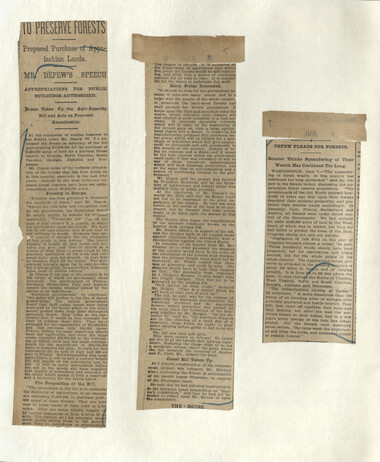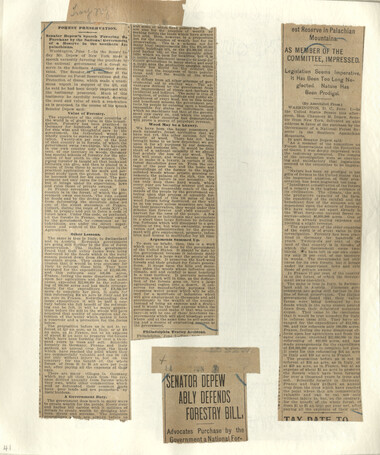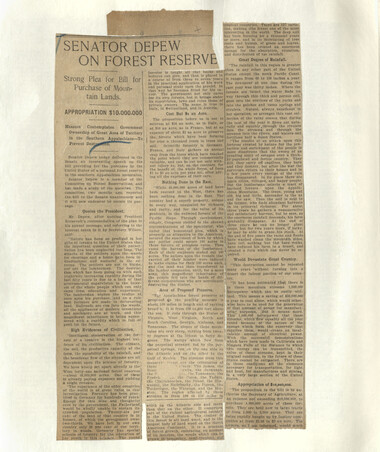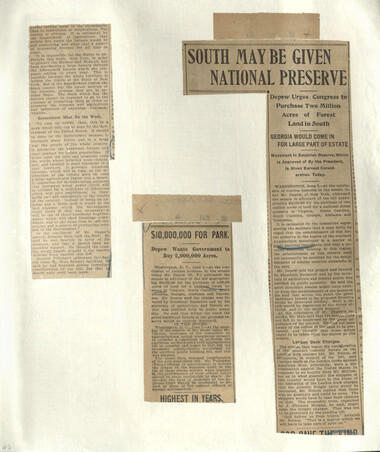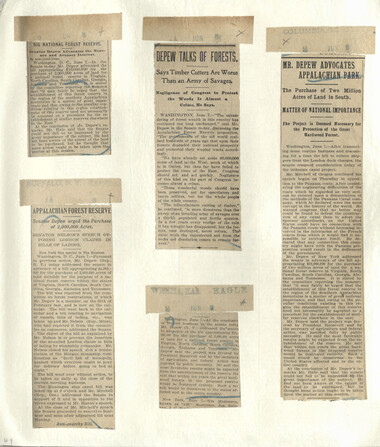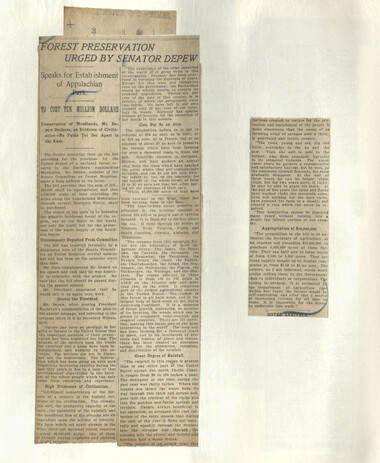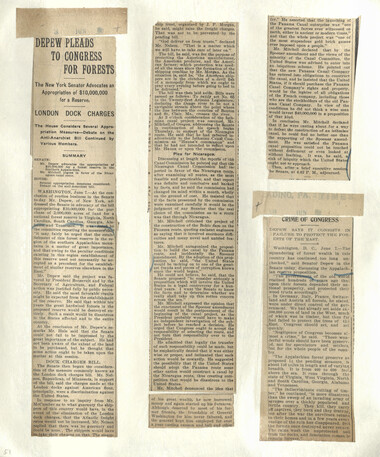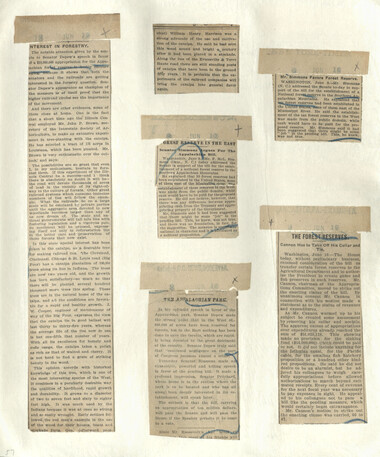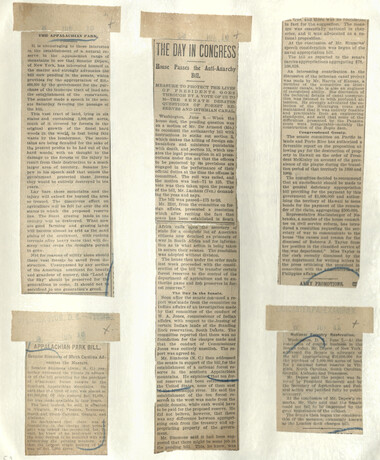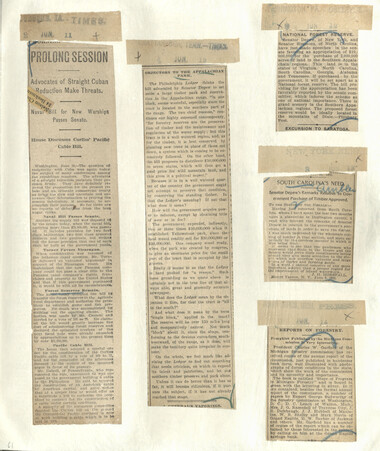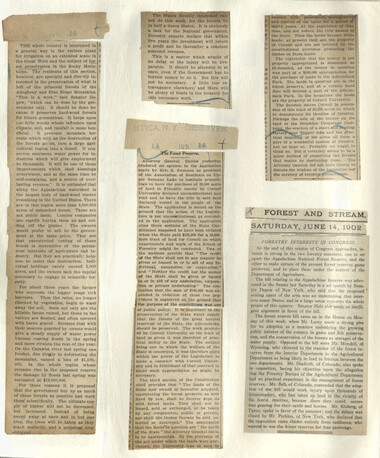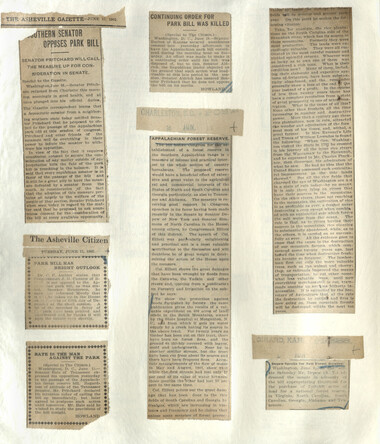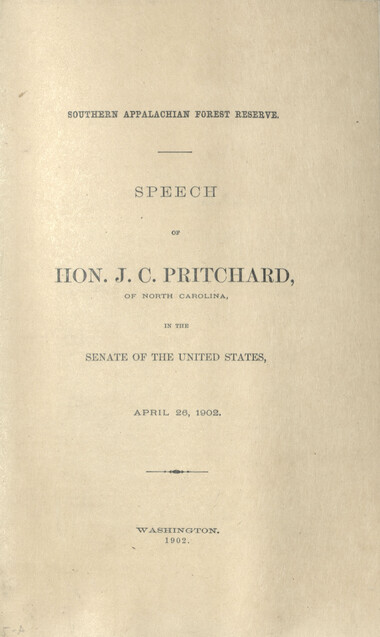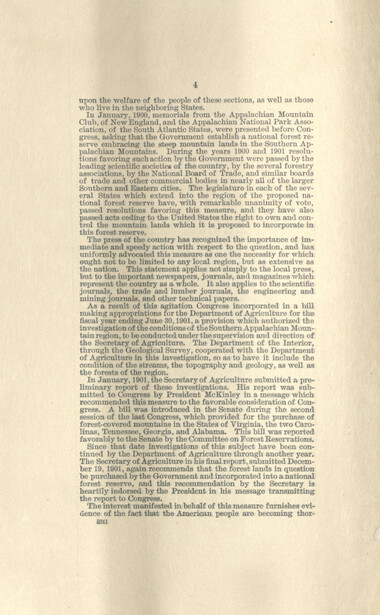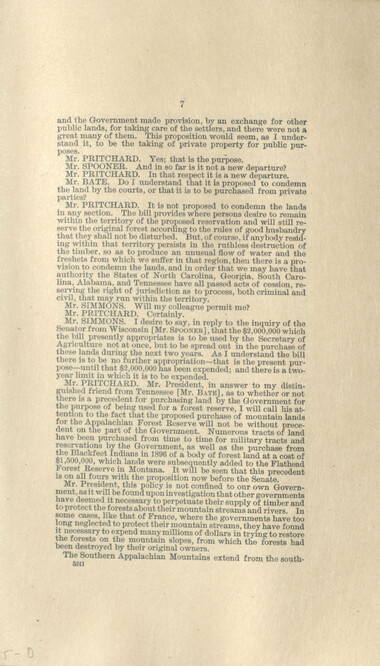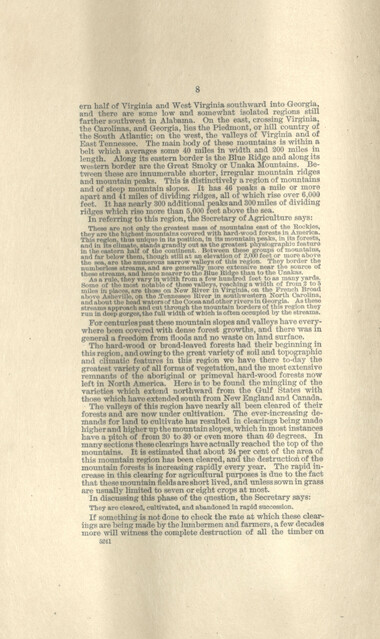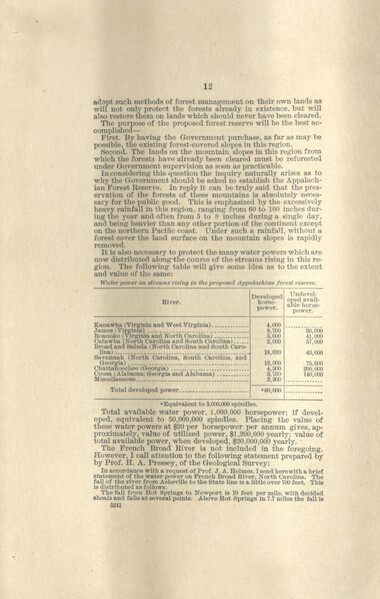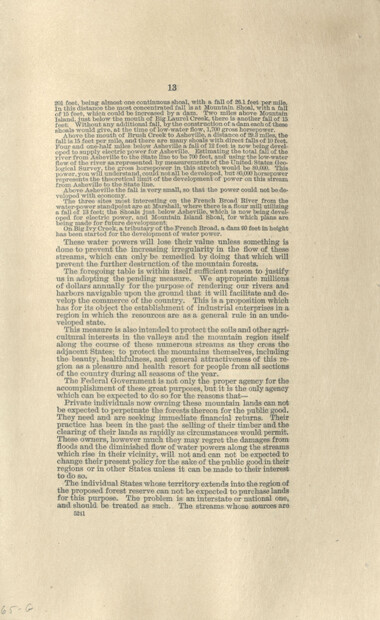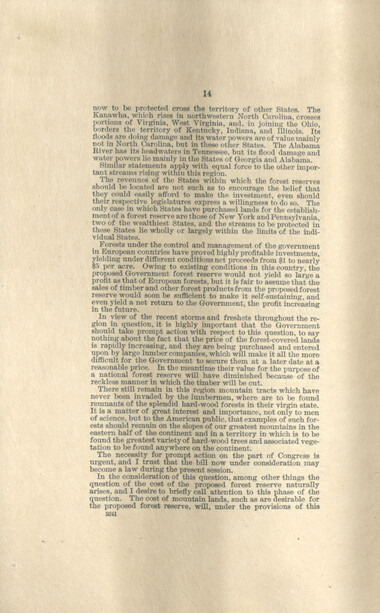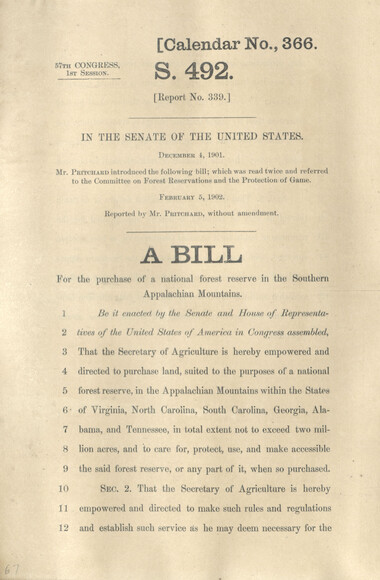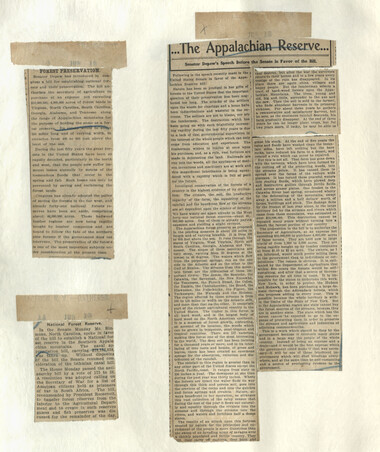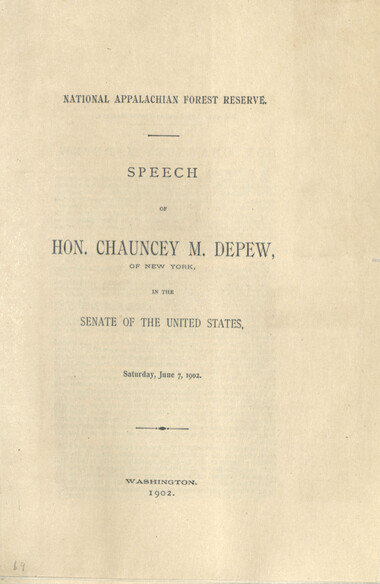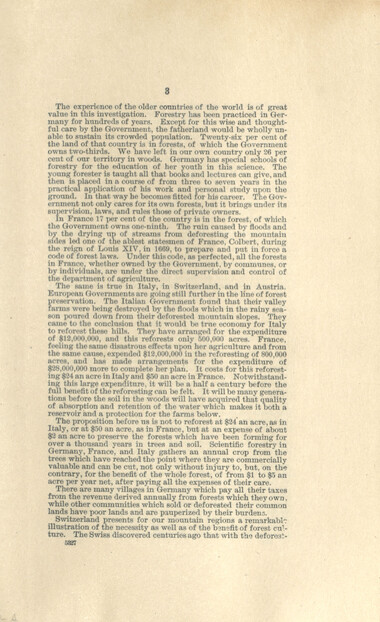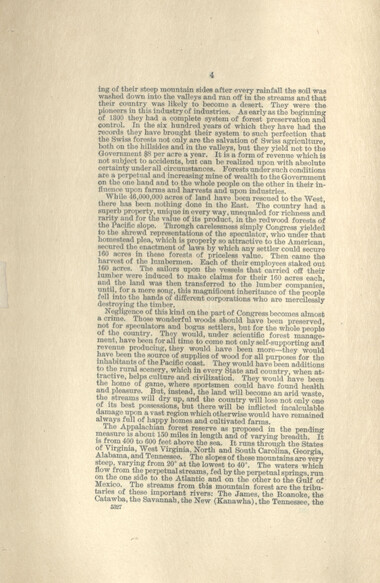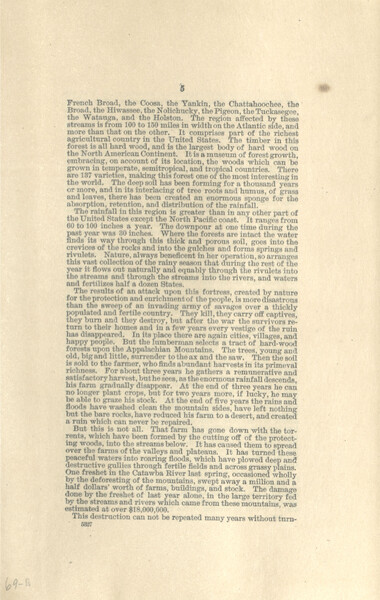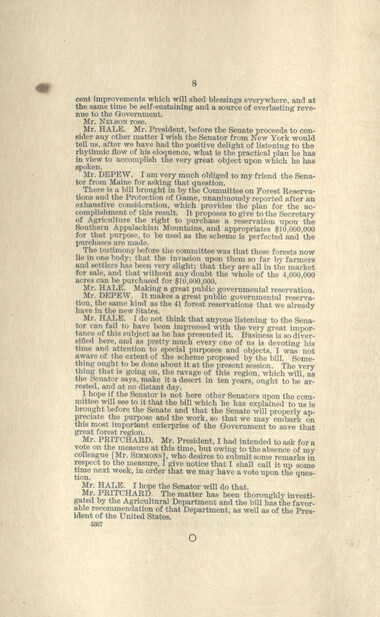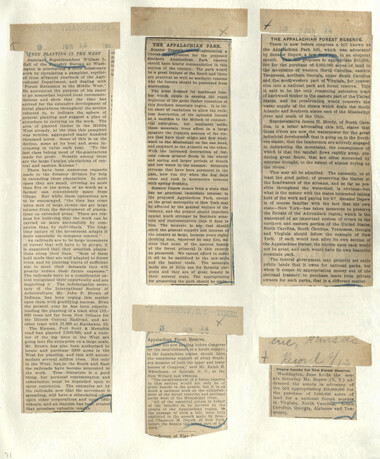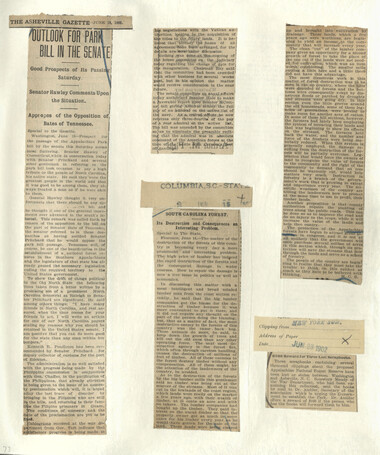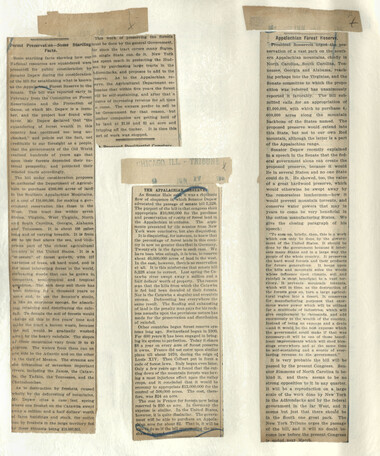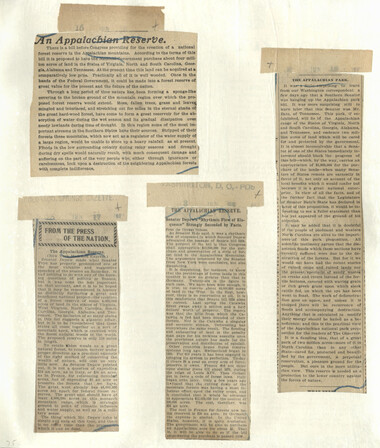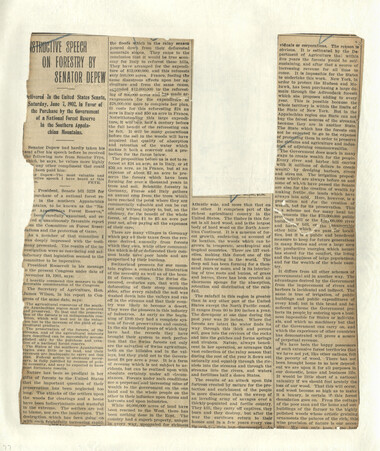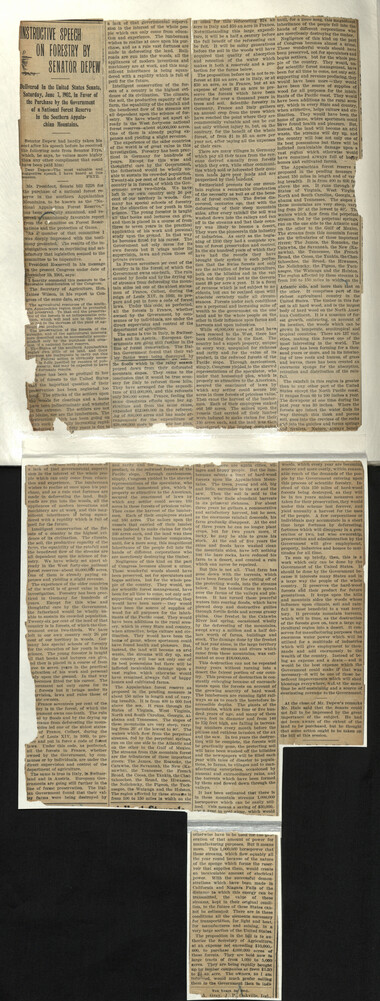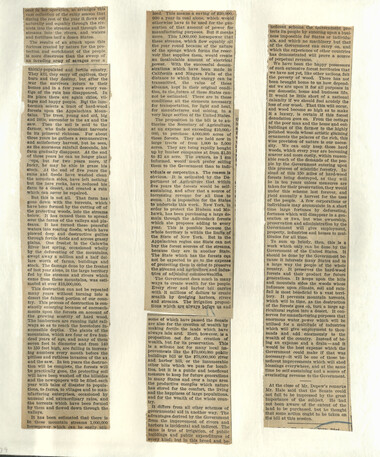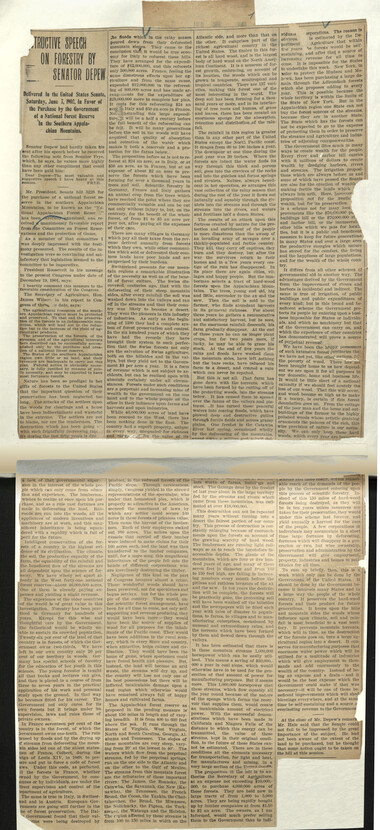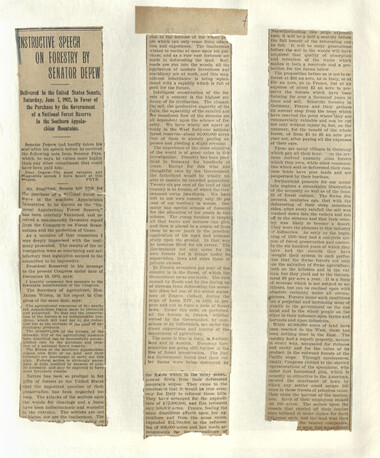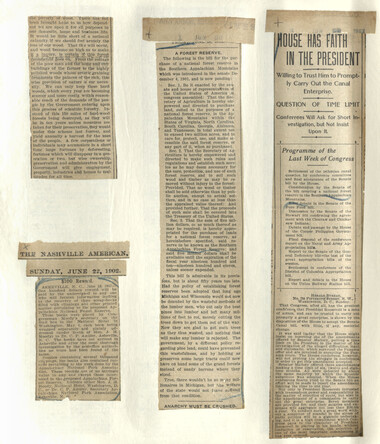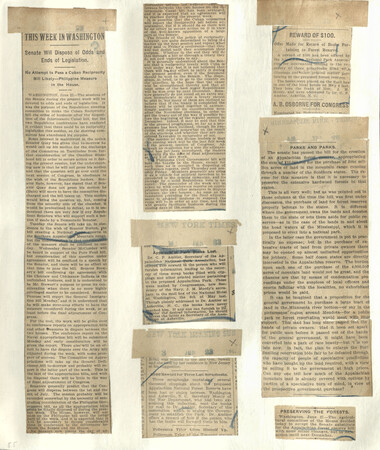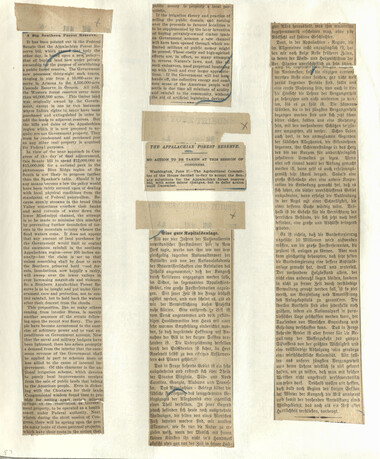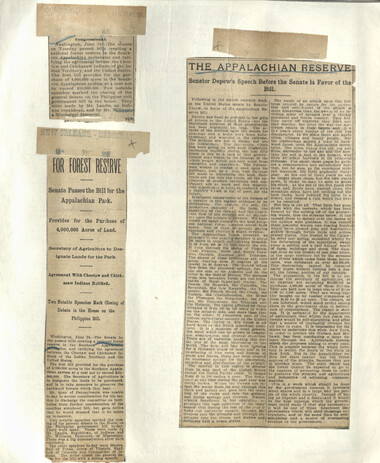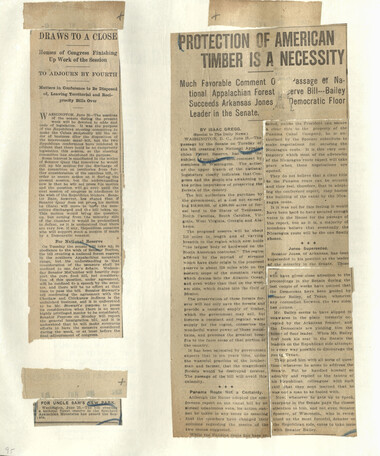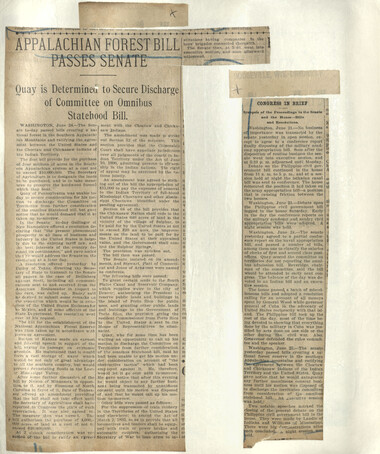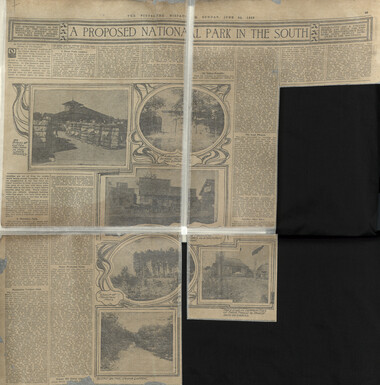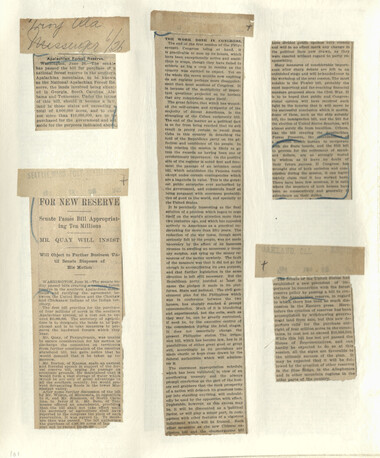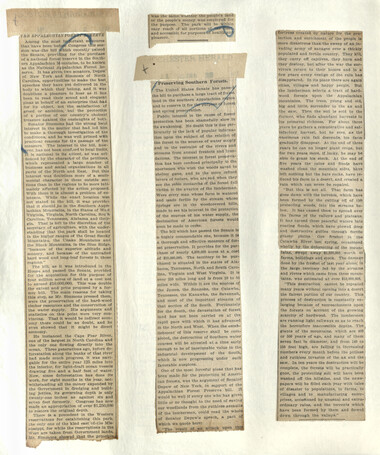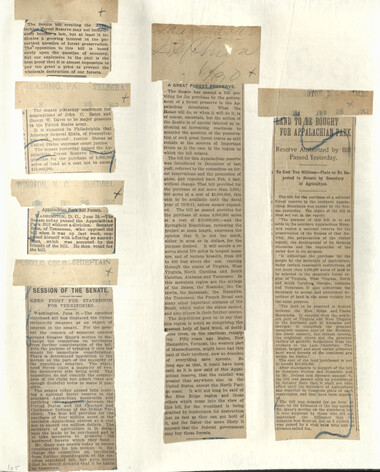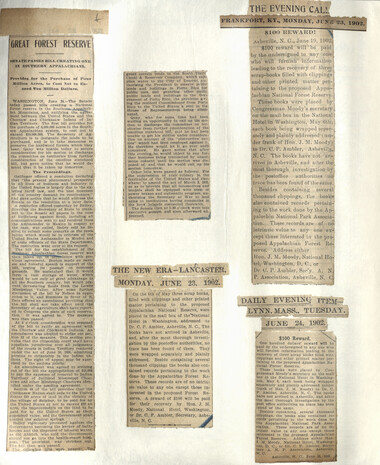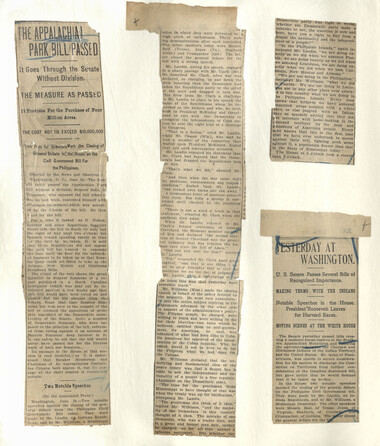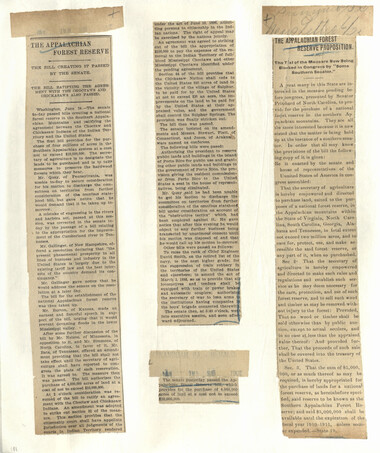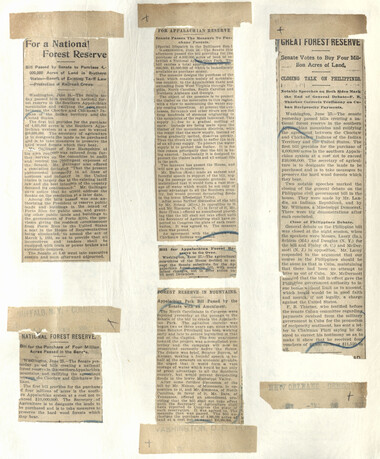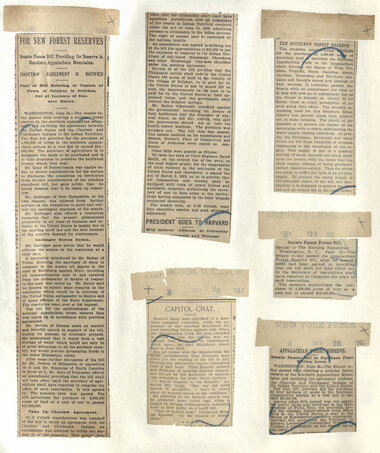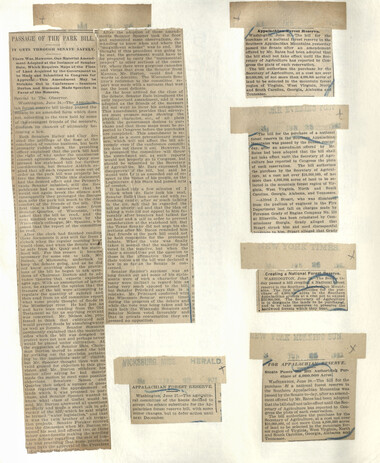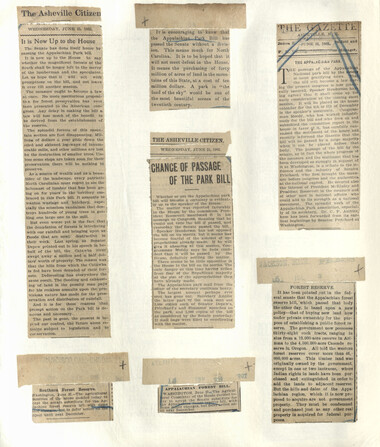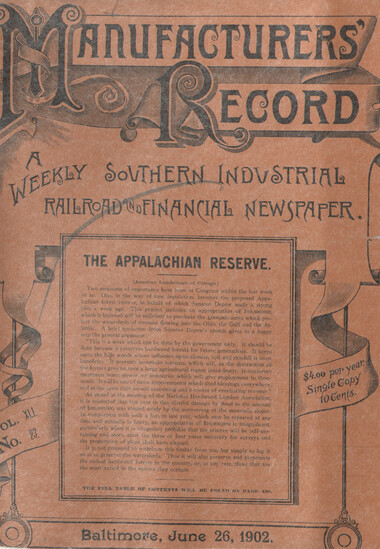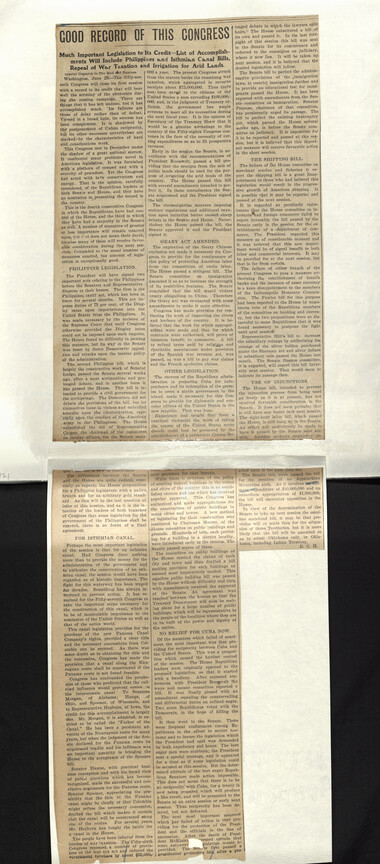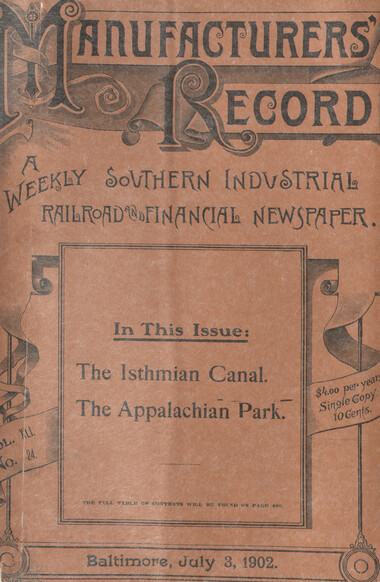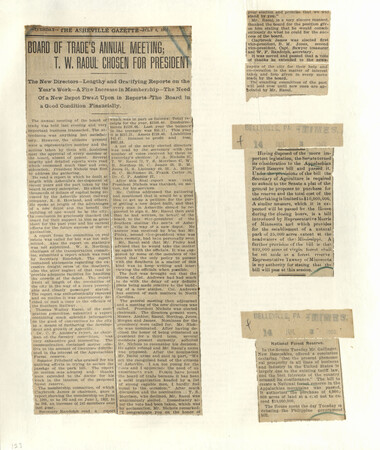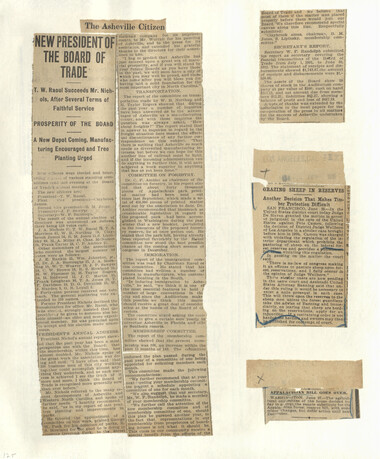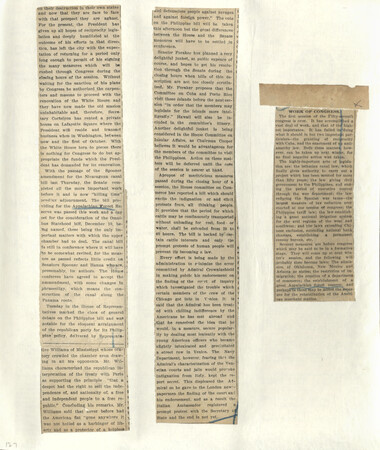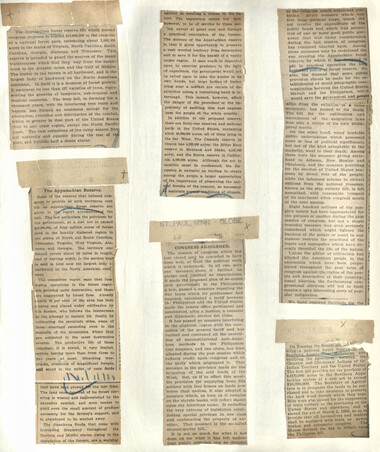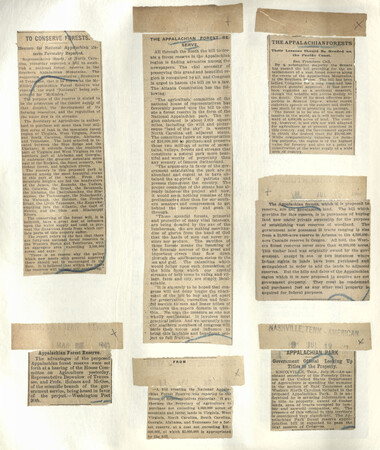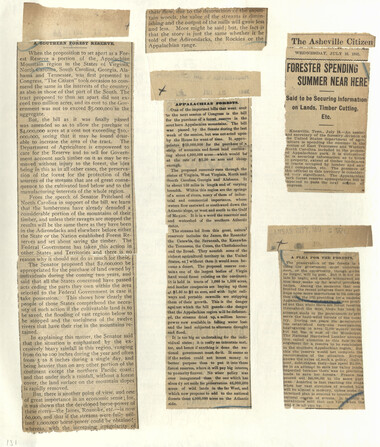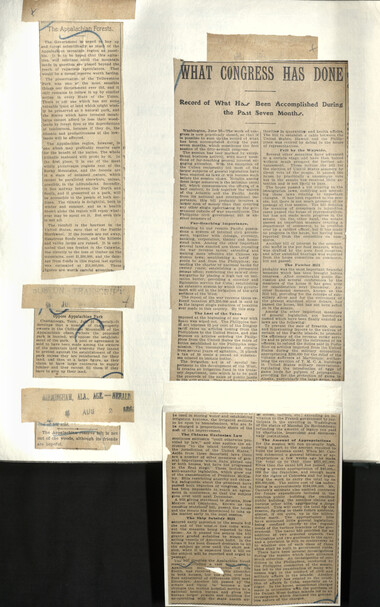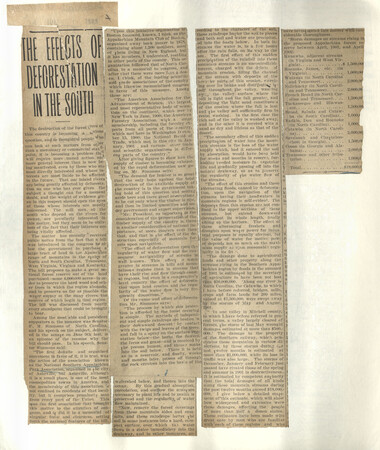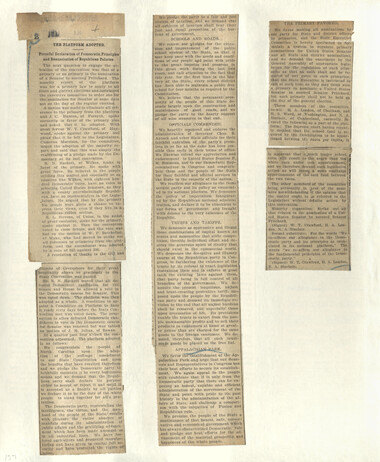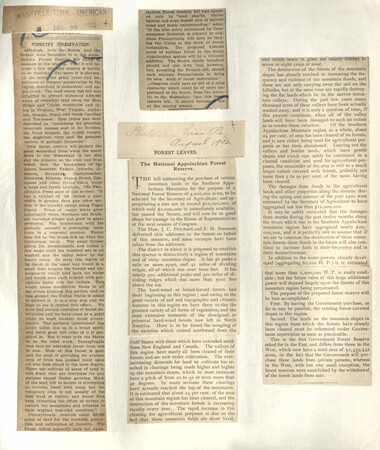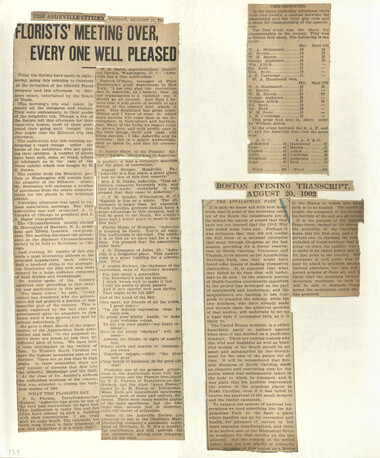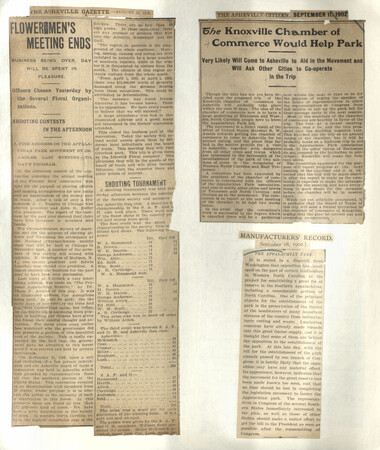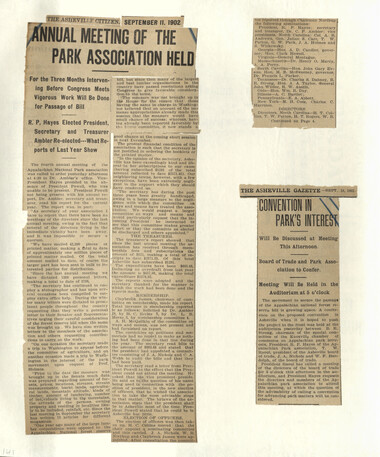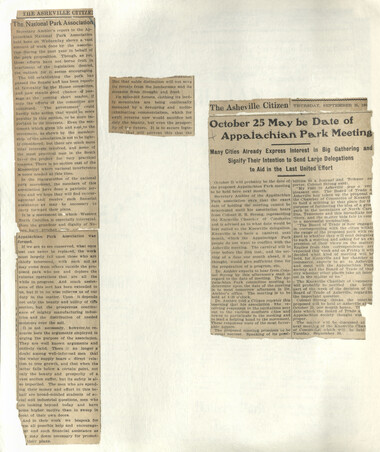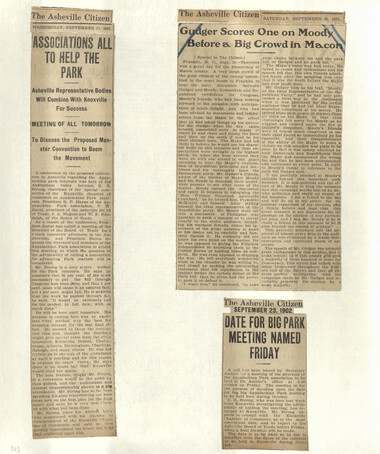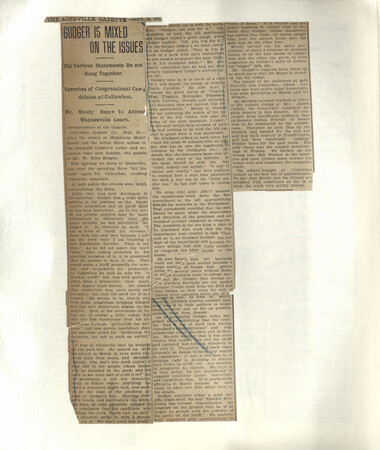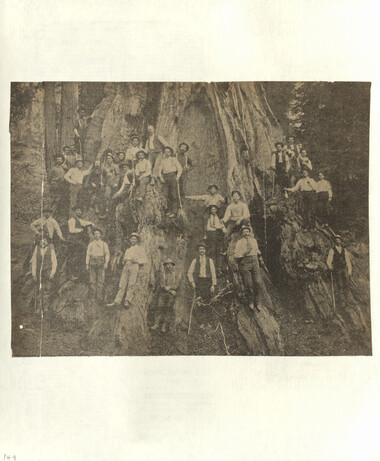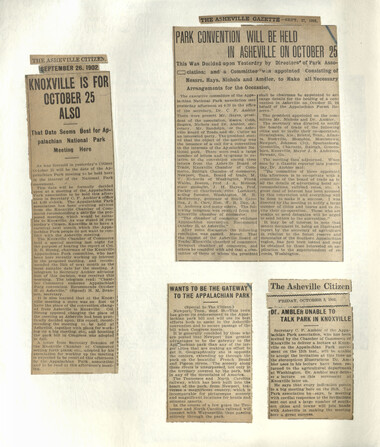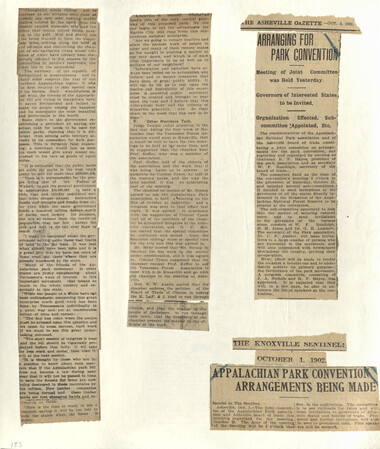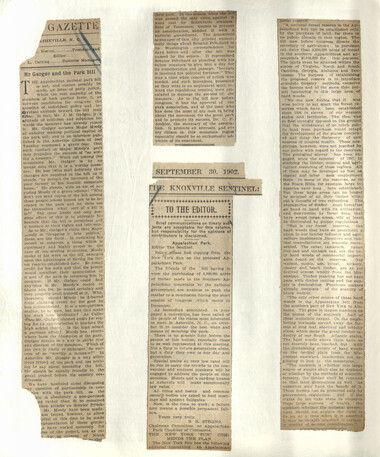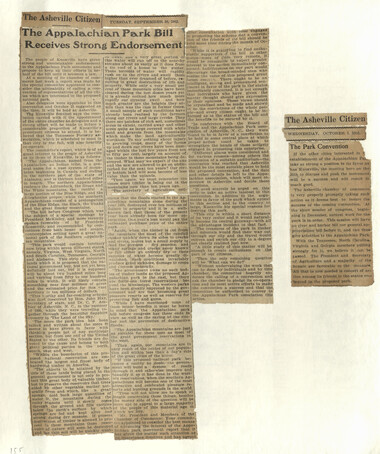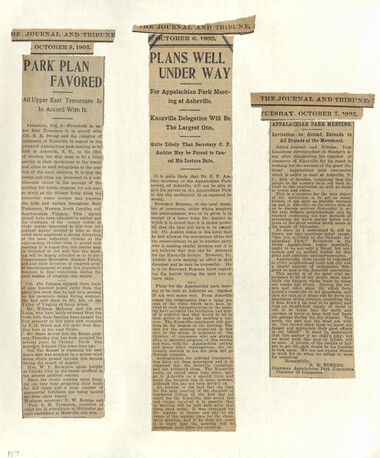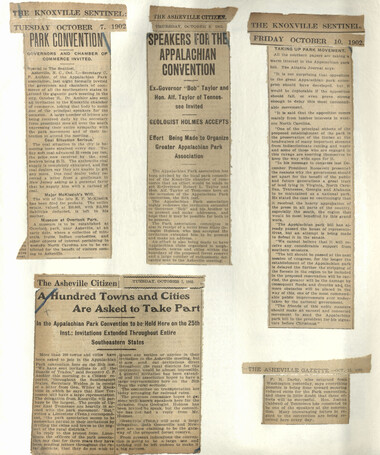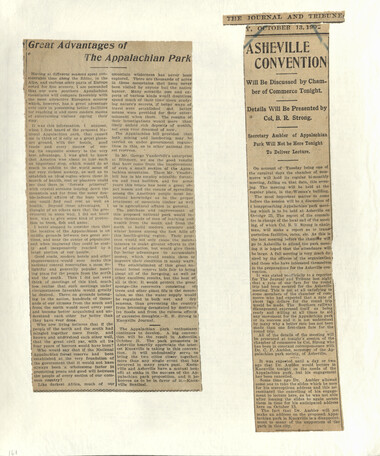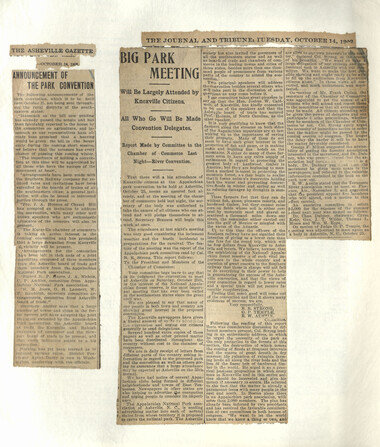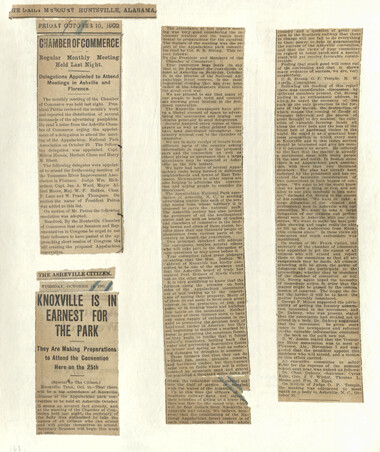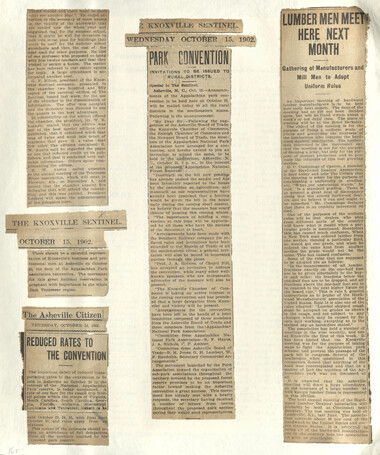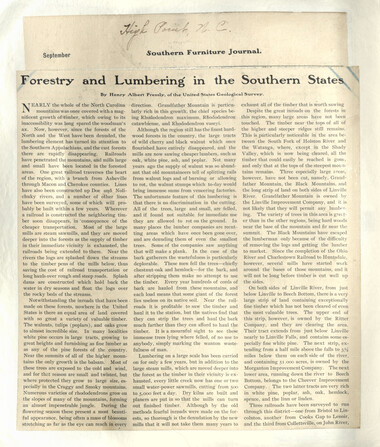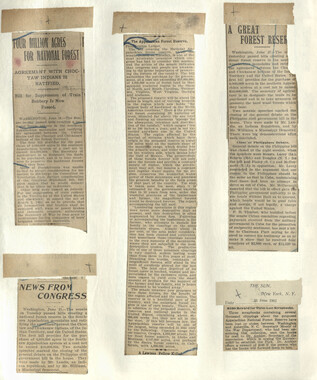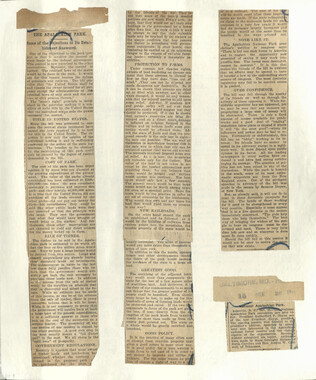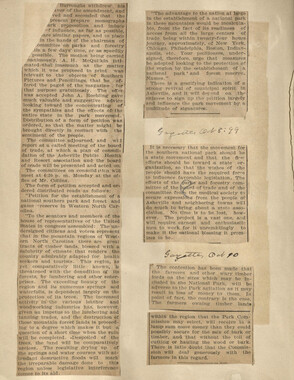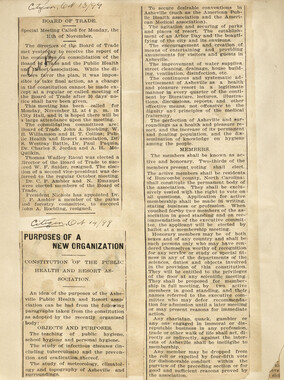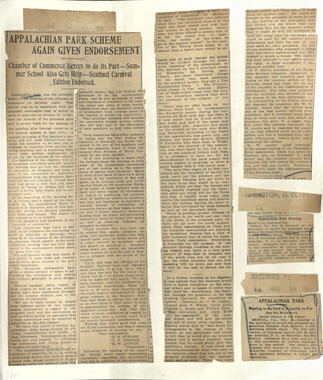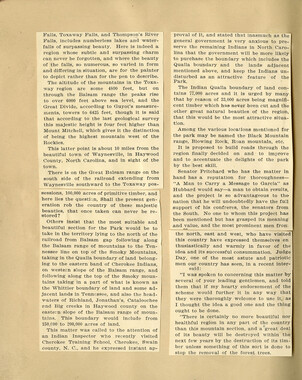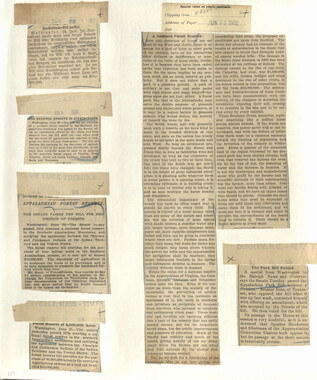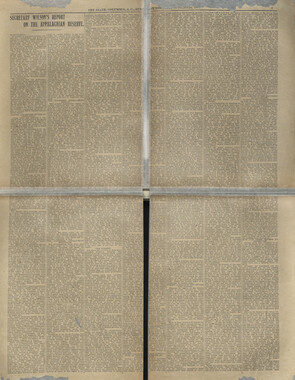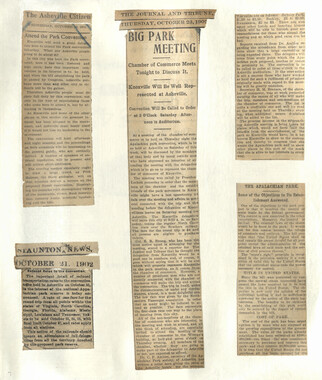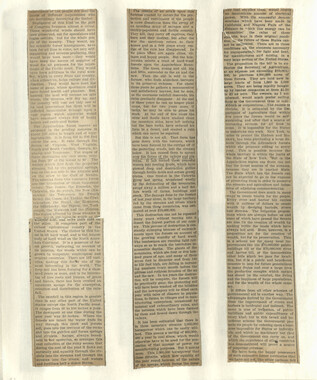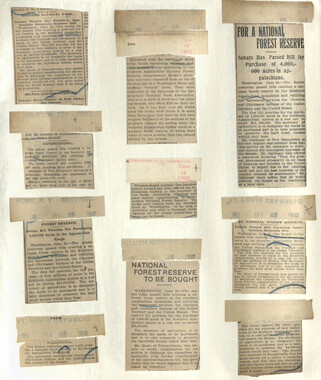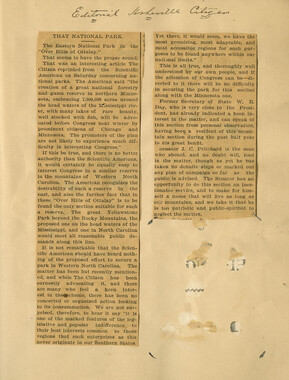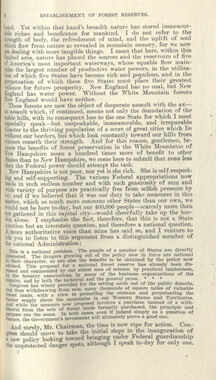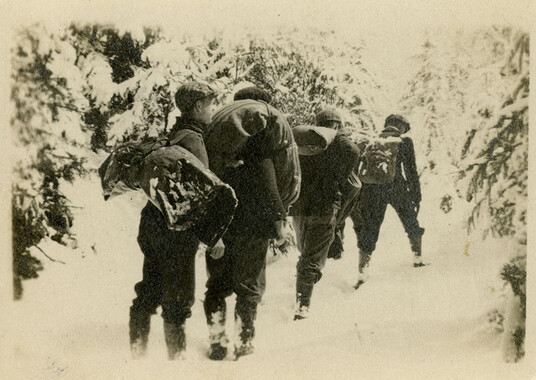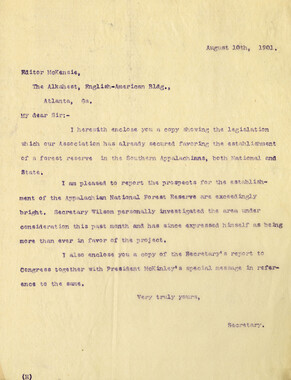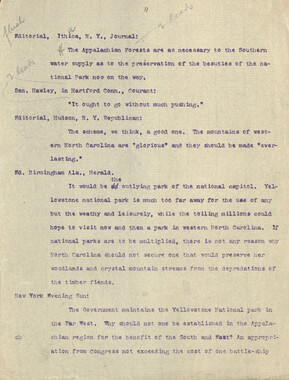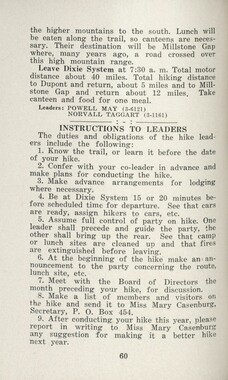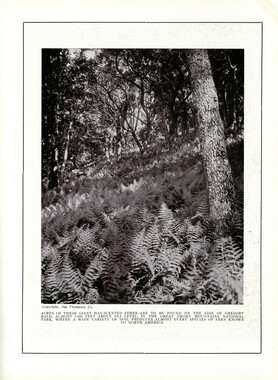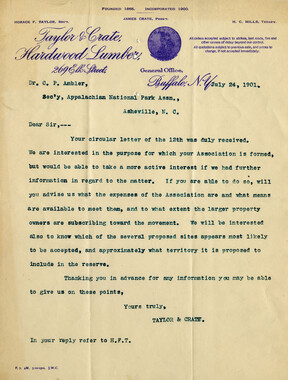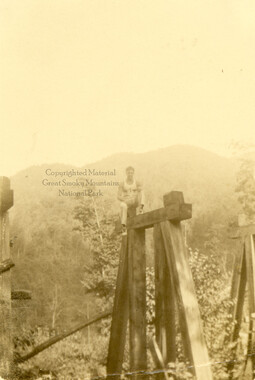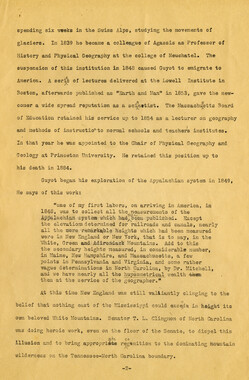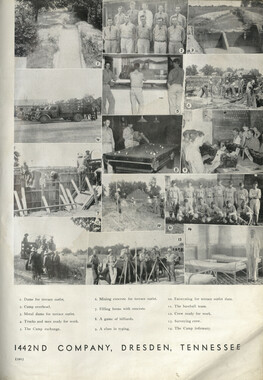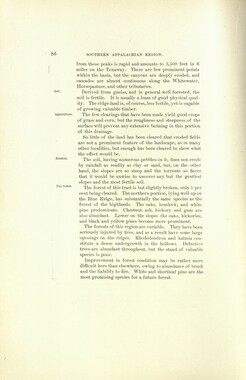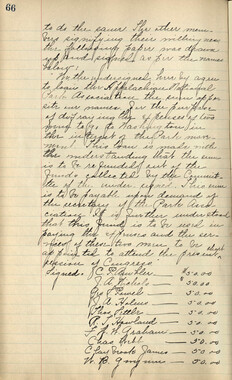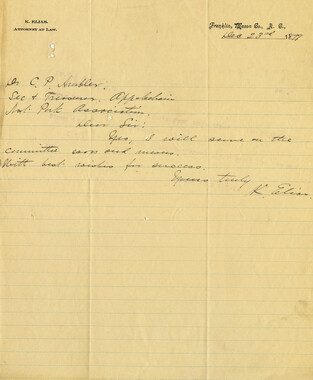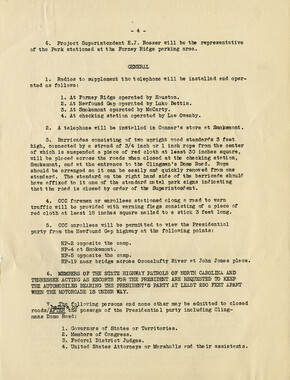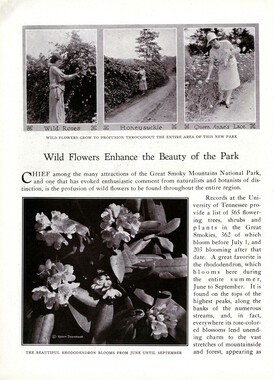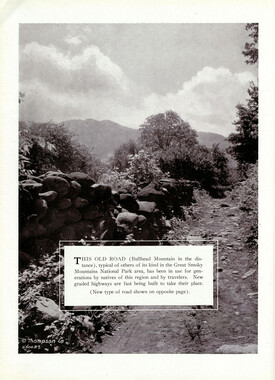Western Carolina University (20)
View all
- Canton Champion Fibre Company (2308)
- Cherokee Traditions (291)
- Civil War in Southern Appalachia (165)
- Craft Revival (1942)
- Great Smoky Mountains - A Park for America (2857)
- Highlights from Western Carolina University (430)
- Horace Kephart (941)
- Journeys Through Jackson (159)
- LGBTQIA+ Archive of Jackson County (85)
- Oral Histories of Western North Carolina (314)
- Picturing Appalachia (6772)
- Stories of Mountain Folk (413)
- Travel Western North Carolina (160)
- Western Carolina University Fine Art Museum Vitreograph Collection (129)
- Western Carolina University Herbarium (92)
- Western Carolina University: Making Memories (708)
- Western Carolina University Publications (2353)
- Western Carolina University Restricted Electronic Theses and Dissertations (146)
- Western North Carolina Regional Maps (71)
- World War II in Southern Appalachia (131)
University of North Carolina Asheville (6)
View all
- Allanstand Cottage Industries (62)
- Appalachian National Park Association (53)
- Bennett, Kelly, 1890-1974 (1388)
- Berry, Walter (76)
- Brasstown Carvers (40)
- Carver, George Washington, 1864?-1943 (26)
- Cathey, Joseph, 1803-1874 (1)
- Champion Fibre Company (233)
- Champion Paper and Fibre Company (297)
- Cherokee Indian Fair Association (16)
- Cherokee Language Program (22)
- Crowe, Amanda (40)
- Edmonston, Thomas Benton, 1842-1907 (7)
- Ensley, A. L. (Abraham Lincoln), 1865-1948 (275)
- Fromer, Irving Rhodes, 1913-1994 (70)
- George Butz (BFS 1907) (46)
- Goodrich, Frances Louisa (120)
- Grant, George Alexander, 1891-1964 (96)
- Heard, Marian Gladys (60)
- Kephart, Calvin, 1883-1969 (15)
- Kephart, Horace, 1862-1931 (313)
- Kephart, Laura, 1862-1954 (39)
- Laney, Gideon Thomas, 1889-1976 (439)
- Masa, George, 1881-1933 (61)
- McElhinney, William Julian, 1896-1953 (44)
- Niggli, Josephina, 1910-1983 (10)
- North Carolina Park Commission (105)
- Osborne, Kezia Stradley (9)
- Owens, Samuel Robert, 1918-1995 (11)
- Penland Weavers and Potters (36)
- Roberts, Vivienne (15)
- Roth, Albert, 1890-1974 (142)
- Schenck, Carl Alwin, 1868-1955 (1)
- Sherrill's Photography Studio (2565)
- Southern Highland Handicraft Guild (127)
- Southern Highlanders, Inc. (71)
- Stalcup, Jesse Bryson (46)
- Stearns, I. K. (213)
- Thompson, James Edward, 1880-1976 (226)
- United States. Indian Arts and Crafts Board (130)
- USFS (683)
- Vance, Zebulon Baird, 1830-1894 (1)
- Weaver, Zebulon, 1872-1948 (58)
- Western Carolina College (230)
- Western Carolina Teachers College (282)
- Western Carolina University (1840)
- Western Carolina University. Mountain Heritage Center (18)
- Whitman, Walt, 1819-1892 (10)
- Wilburn, Hiram Coleman, 1880-1967 (73)
- Williams, Isadora (3)
- Cain, Doreyl Ammons (0)
- Crittenden, Lorraine (0)
- Rhodes, Judy (0)
- Smith, Edward Clark (0)
- Appalachian Region, Southern (2569)
- Asheville (N.C.) (1923)
- Avery County (N.C.) (26)
- Blount County (Tenn.) (169)
- Buncombe County (N.C.) (1672)
- Cherokee County (N.C.) (283)
- Clay County (N.C.) (555)
- Graham County (N.C.) (233)
- Great Smoky Mountains National Park (N.C. and Tenn.) (519)
- Haywood County (N.C.) (3567)
- Henderson County (N.C.) (70)
- Jackson County (N.C.) (4745)
- Knox County (Tenn.) (31)
- Knoxville (Tenn.) (12)
- Lake Santeetlah (N.C.) (10)
- Macon County (N.C.) (420)
- Madison County (N.C.) (215)
- McDowell County (N.C.) (39)
- Mitchell County (N.C.) (132)
- Polk County (N.C.) (35)
- Qualla Boundary (981)
- Rutherford County (N.C.) (76)
- Swain County (N.C.) (2117)
- Transylvania County (N.C.) (270)
- Watauga County (N.C.) (12)
- Waynesville (N.C.) (84)
- Yancey County (N.C.) (72)
- Aerial Photographs (3)
- Aerial Views (60)
- Albums (books) (4)
- Articles (1)
- Artifacts (object Genre) (228)
- Bibliographies (1)
- Biography (general Genre) (2)
- Cards (information Artifacts) (38)
- Clippings (information Artifacts) (191)
- Copybooks (instructional Materials) (3)
- Crafts (art Genres) (622)
- Depictions (visual Works) (21)
- Design Drawings (1)
- Drawings (visual Works) (185)
- Envelopes (73)
- Exhibitions (events) (1)
- Facsimiles (reproductions) (1)
- Fiction (general Genre) (4)
- Financial Records (12)
- Fliers (printed Matter) (67)
- Glass Plate Negatives (381)
- Guidebooks (2)
- Internegatives (10)
- Interviews (815)
- Land Surveys (102)
- Letters (correspondence) (1013)
- Manuscripts (documents) (618)
- Maps (documents) (177)
- Memorandums (25)
- Minutes (administrative Records) (59)
- Negatives (photographs) (5926)
- Newsletters (1290)
- Newspapers (2)
- Notebooks (8)
- Occupation Currency (1)
- Paintings (visual Works) (1)
- Pen And Ink Drawings (1)
- Periodicals (193)
- Personal Narratives (10)
- Photographs (12976)
- Plans (maps) (1)
- Poetry (5)
- Portraits (4535)
- Postcards (329)
- Programs (documents) (151)
- Publications (documents) (2305)
- Questionnaires (65)
- Sayings (literary Genre) (1)
- Scrapbooks (282)
- Sheet Music (2)
- Slides (photographs) (402)
- Songs (musical Compositions) (2)
- Sound Recordings (796)
- Specimens (92)
- Speeches (documents) (15)
- Tintypes (photographs) (8)
- Transcripts (322)
- Video Recordings (physical Artifacts) (23)
- Vitreographs (129)
- Text Messages (0)
- A.L. Ensley Collection (275)
- Appalachian Industrial School Records (7)
- Appalachian National Park Association Records (336)
- Axley-Meroney Collection (2)
- Bayard Wootten Photograph Collection (20)
- Bethel Rural Community Organization Collection (7)
- Blumer Collection (5)
- C.W. Slagle Collection (20)
- Canton Area Historical Museum (2110)
- Carlos C. Campbell Collection (373)
- Cataloochee History Project (64)
- Cherokee Studies Collection (4)
- Daisy Dame Photograph Album (5)
- Daniel Boone VI Collection (1)
- Doris Ulmann Photograph Collection (112)
- Elizabeth H. Lasley Collection (1)
- Elizabeth Woolworth Szold Fleharty Collection (4)
- Frank Fry Collection (95)
- George Masa Collection (173)
- Gideon Laney Collection (452)
- Hazel Scarborough Collection (2)
- Hiram C. Wilburn Papers (28)
- Historic Photographs Collection (236)
- Horace Kephart Collection (861)
- Humbard Collection (33)
- Hunter and Weaver Families Collection (1)
- I. D. Blumenthal Collection (4)
- Isadora Williams Collection (4)
- Jesse Bryson Stalcup Collection (47)
- Jim Thompson Collection (224)
- John B. Battle Collection (7)
- John C. Campbell Folk School Records (80)
- John Parris Collection (6)
- Judaculla Rock project (2)
- Kelly Bennett Collection (1407)
- Love Family Papers (11)
- Major Wiley Parris Civil War Letters (3)
- Map Collection (12)
- McFee-Misemer Civil War Letters (34)
- Mountain Heritage Center Collection (4)
- Norburn - Robertson - Thomson Families Collection (44)
- Pauline Hood Collection (7)
- Pre-Guild Collection (2)
- Qualla Arts and Crafts Mutual Collection (12)
- R.A. Romanes Collection (681)
- Rosser H. Taylor Collection (1)
- Samuel Robert Owens Collection (94)
- Sara Madison Collection (144)
- Sherrill Studio Photo Collection (2558)
- Smoky Mountains Hiking Club Collection (616)
- Stories of Mountain Folk - Radio Programs (374)
- The Reporter, Western Carolina University (510)
- Venoy and Elizabeth Reed Collection (16)
- WCU Gender and Sexuality Oral History Project (32)
- WCU Mountain Heritage Center Oral Histories (25)
- WCU Oral History Collection - Mountain People, Mountain Lives (71)
- WCU Students Newspapers Collection (1784)
- Western North Carolina Tomorrow Black Oral History Project (69)
- William Williams Stringfield Collection (2)
- Zebulon Weaver Collection (109)
- African Americans (390)
- Appalachian Trail (35)
- Artisans (521)
- Cherokee art (84)
- Cherokee artists -- North Carolina (10)
- Cherokee language (21)
- Cherokee pottery (101)
- Cherokee women (208)
- Church buildings (170)
- Civilian Conservation Corps (U.S.) (110)
- College student newspapers and periodicals (1876)
- Dams (107)
- Dance (1023)
- Education (222)
- Floods (61)
- Folk music (1015)
- Forced removal, 1813-1903 (2)
- Forest conservation (220)
- Forests and forestry (1184)
- Gender nonconformity (4)
- Great Smoky Mountains National Park (N.C. and Tenn.) (181)
- Hunting (45)
- Landscape photography (25)
- Logging (118)
- Maps (83)
- Mines and mineral resources (8)
- North Carolina -- Maps (18)
- Paper industry (38)
- Postcards (255)
- Pottery (135)
- Railroad trains (71)
- Rural electrification -- North Carolina, Western (3)
- School integration -- Southern States (2)
- Segregation -- North Carolina, Western (5)
- Slavery (5)
- Sports (452)
- Storytelling (243)
- Waterfalls -- Great Smoky Mountains (N.C. and Tenn.) (66)
- Weaving -- Appalachian Region, Southern (280)
- Wood-carving -- Appalachian Region, Southern (328)
- World War, 1939-1945 (173)
Appalachian National Park Association Newspaper Clippings, 1899-1902
Item
Item’s are ‘child’ level descriptions to ‘parent’ objects, (e.g. one page of a whole book).
-
-
FOREST PRESERVATION. Senator depew makes a strong argument FOB THE PROPOSED APPALACHIAN PARK. IllY TKI.UIUUI'H Tl! THE TKIBlNE.l Washington, June 7.—Mr, Depew, of New-York, made In the Senate to-day a timely and convincing argument in advocacy of the Appalachian Park project. A bill has been reported to the Senate by the Committee on Forest Reserves and the Protection of Game, which proposes to expend $10,000,000 In the- creation of a national forest park, to embrace about two million acres of forest lands in the States of North Carolina, South Carolina. Georgia, Alabama, Tennessee and Virginia. This great Appalachian reserve Is to be maintained and administered by the federal government In order to guard the sources of the thousands of watercourses which find their way from its plateaus to the Atlantic or to the Gulf of Mexico, and thus protect the vast area of agricultural lands which these rivers en- Ttch and fertilize. As a member of the Committee on Forest Reservations the Junior Senator from New-York has given much careful study U the forestry problem, and his appeal to the Senate to "^undertake this beneficent and national work was supported by many illustrations ot the lnjiries Buffered In older countries from a wasteful ind ehort sighted denudation of forest areas. It Is safd by the committee reporting Hie bill that "It may fairly be urged that tie establishment of this forest reserve In the ri- gioii of the South Appalachian Mountains Is * {matter of great national importance, and that, •wins; to the peculiar conditions existing In this region, the establishment of this reBerve need not necessarily be accepted as a precedent for the establishment of similar reserves elsewhere in the jEast." ■ Mr. Depew spoke In part as follows: 1 Nature has been so prodigal In her gifts of forests jto the United States that the Important question me their preservation has been neglected too long, ittacks or the settlers upon the woods for aririgs and a home have been indiscriminate and (Wasteful In the extreme. The settlers are not to .tie* -e the lumbermen. The destruction ■Mil [ng mi uith surh frightfully In creasing rapidity during Hie laal nfty years Is due ,.-k el tin.! governmental supervision In the ii only i.-onie /rem education mil experience. The lumberman ,-wl; ' e upon hi* purchase, and ms a rule, nasi fori -s in ng the Jane Oads lire run Into Hie IVOOdS, all the ■.nplianees of modi m In v are pt -.-, ,.„ Im helm ■Hue /or the red i\ no a rapidity which Is full of peril "i\ na, million acre*. One of mse* and yielding a slight Intel! grj , IU civilization. The (file ,,-ity of the farm. - How of the pendent upon •he science ol , wisely set ap u i •tile ■erves abo pnrtng ■Wen While, 46,000,1)011 i „ rescued Wei i. ii. .1, nothing done In tho fEruil. The country had a Hil|ierli (11 dune In every way, uni quail. iroduct, In the redwood (ores! ol i he I'm Hie Slope. Throii ne«*, pimply, i.e., i,- yielded io the shrewd ri lions of the speculator, wh.,, under thai homestead tole.i, which I propel ly the Amer- I mem ,,|- in wm Dy wdiieh any Her i ould ■■• - in, 160 acres l" -1 In of girl. lumbermen Each of their employes staked out IW acres. The sailors upon th that carried k>ff their liimh. i- were Indue,,i to make claims for Nhelr 160 i ihe land was then trans ferred to the lumber companies, until, tot a mere gom of the pi fell Into rporatlons who »re troylng the tln-iii- i NegllgeneT- of this kind on the part of Congress pecone a crime. Those wonderful woods Ishouid have been preserved, n*1 for speculator." (and bogus settlers, but for the whole people of the I country. They would, under sclentlflce forest management, have been for all time to come not tonly self-supporting and revenue producing, they ■would have been more—they would have been the lource of supplies of wood for all purposes for the nhabltants of the Pacific Coast. They would lave been additions to the rural scenery, which n every State and country, when attractive, helps oilture and civilization. They would have been he home of game, where sportsmen could have ound health and pleasure. But, instead, the land nill become an arid waste, the streams will dry p, and the country will lose not only one of its est possessions, but there will be inflicted in- ■ ulable damage upon a vast region which otherwise would have remained always full of happy pomes and cultivated farms. THE PROPOSED APPALACHIAN PARK. •n forest preserve as proposed In -ure is about 150 miles in length una of varying breadth, it is from 400 to 600 feet labove the sea. It runs through the States of Virginia, West Virginia, North and South Carolina. Georgia, Alabama and Tennessee. The slopes of Ithese mountains are very. steep, varying from 20 Idegrees at the lowest to 40 degrees. The waters Iwhich flow from the perpetual streams, fed by the fierpetual springs, run on the one side to the At- antic, and on the other to the Gulf of Mexico. The streams from this mountain forest are the tributaries of these important rivers: The James. She Roanoke, the Catawba, the Savannah, the INew (Kanawha), the Tennessee, the French Broad, [the Coosa, the Yankln, the Chattahoochee, the Broad, the Hiwassee, the Noliehucky, the Pigeon, (the Tuckasegee, the Watauga and the Holston. JThe region affected by these streams Is from 10C jto 150 miles in width on the Atlantic side, and more "than that on the other. It comprises part of the richest agricultural country in the United States. *The timber in this forest Is all hardwood and Is [the largest body of hardwood on the North American Continent. It is a museum of forest growth, {embracing, on account of its location, the woods [which can be grown in temperate, semi-tropical and [tropical countries. There are 137 varieties, making this forest one of the most interesting In the [world. The deep soil has been forming for a [thousand years or more, and in its interlacing of (tree roots and humus, of grass and leaves, there (has been created an enormous sponge for the absorption, retention and distribution of the raln- tfall. The rainfall In this region Is greater than in any other part of the United Slates, except the (North Pacific Coast. It ranges from 60 to 100 inches a year. The downpour at one time during Sthe last year was 30 inches. Where the forests fere Intact the water' finds its wiy through this (thick and porous soil, goes into the crevices of the jocks and Into the gulches and forms springs and .rivulets. Nature, always beneficent' in her operation, so arranges this vast collection of the rainy [eeason that during the rest of the year it flows tout naturally and equably through the rivulets Hnto the streams and through the streams Into the 'rivers and waters and fertilizes half a dozen (States. The result of an attack upon this fortress cre- itited by nature for the protection and enrichment 'of the people Is more disastrous than the sweep of ;»n invading army of savages over a thickly pop- lulated and fertile country. They kill, they carry off captives, they burn and they destroy, but after the war the survivors return to their homes and !tn a few years every vestige of the ruin has dis- fappeared. In its place there are again cities, villages and happy people. But the lumberman se- Uects a tract of hardwood forests upon the Appalachian Mountains. The trees, young and old. fblg and little, surrender to the axe and the saw. [Then the soil is sold to the farmer, who finds jabundant harvests in its primeval richness. For :«hout three years he gathers a remunerative and Mitisfactory harvest, but he sees, as the enormous !j-alnfall descends, his farm gradually disappear. At ihe end of three years he can no longer plant icrops, but for two years more. If lucky, he may be ehle to graze his stock. At the end of Ave years Kthe rains and floods have washed clean the mountain sides, havo lift nothing but the bare rocks, have reduced hlr farm to a desert, and created a ruin which can never be repaired. nut this Is not all, That farm has gone down vlth the torrents, which have been formed by the cutting off of tin protecting woods, into the ed them to spread over the farm* of the valleys and plateaus. It ha* tinned these peaceful waters into roaring floods, whleh li . 3 deep and destructive gullies ■through fe.rffli I across grassy plains. fin ihe Catawba River last aprlnn ined wholly by the deforesting of the mountains, i wound wnoiiy i,y the deli,r,-sting of the mountains, swept away $1,500,000 worth of farm:, building* and •took. The .inns by the freshet of lasi year alone. In the large territory fed by th* '■ I rivers which came from theso moun- i tains, wan estimated at over $18,000,000. i ■'OIUWTH TlllllOATIONED. 1 This destruction cunnol ho repented many y without turning Into Ihe in I re oi our country. Thin process of destruction is {constantly »nli»irgmg because of encroachments I He- forest* on t the growing n ity of liniilwiMiii Tie- lumbermen are running light. railway* so as to reach the heretofore Inacceeefble The giants of the mountains, which are 400 or tOO vonrs of age. and many of them seven trom 140 to 150 feet high, are falling In Increasing numbers every month before ruthless mvatslon of the axe and the saw. Tn ten years the destruction will be te, the forests will he pract1cally_gone, the flowed down through the valleys. It has been estimated that there is In these mountain streams 1,000,000 horsepower, which can be easily utilized. This means a saving of I $0,000,000 a year in coal alone, which would otherwise have to be used for the generation of that amount of power for manufacturing purposes. But It means more. This 1,000,000 horsepower that these streams, which flow equably all the year round because of the nature of the sponge which forms the reservoir that supplies them, would create an incalculable amount of electrical power. i With the successful demonstrations which have been made in California and Niagara Falls of the . distance to which this energy o&n be transmitted, the value of these streams, kept In their original I condition to the future of these. .States cannot be 'estimated. There are In these conditions all the elements necessary for transportation, for light - and heat, for manufactures and mining, In a very large section of the United States. The proposition in the bill is to authorize the Secretary of Agriculture, at an expense not exceeding tio.noo.ono. i 0 4,000,000 acres of these forests. .rey are held now in large tracts of from 1,000 to 5,000 acres. They are being rapidly bought up by lumber companies at from $1 60 to $2 an acre. The owners, as I am informed, would much prefer selling them to the government than to Individuals or corporations. The reason is obvious. It Is estimated by the Department of Agriculture that within five years the forests would be self-sustaining, and after that's source of increasing revenue for all time to co»ne. It is impossible for the States to undertake this work. New-York, in order to protect the Hudscn and Mohawk, has been ' purchasing a large domain through the Adirondack torests which she propose*? adding to every year. This is possible, because the whole territory is within the limits of the State of New-York. But In the Appalachian region one State cannot buy the forest sources of the streams, because they are in another State. The State which has the forests cannot be expected to go to the expense of protecting them in order to preserve the streams and agriculture and Industries of adjoining commonwealths. The government does much In many ways to create wealth for the people. Every river sand harbor bill carries with it millions of dollars to create wealth by dredging harbors, rivers amd streams. The irrigation propositions which are- always before us, and some of which have passed the Senate, are also for the creation of wealth by making fertile the lands which have always lain arid. Here, howjver. Is a proposition not for the ereatlon of wealth, but for its preservation. This Is a scheme not for many local improvements, like the $70,000,000 Public Buildings bill or the ftp,- 000,000 River and Harbor bill, or the innumerable. other bills which we pass for localities, but It Is a **--ture Lrea public and benefleent measure to keep for futur. generations in many States and over a large area the productive energies which nature has stored for the comfort, the living and the happiness of large populations and for the wealth of the whole country. It differs from all other schemes of governmenfti aid in another way. The advantages derived b: the government from the improvement of riviers and harbors Is incidental and indirect. The same is true of irrigation, of public buildings and public expenditures of every kind; but in this broad anr beneficent scheme the government protects its peo pie by entering upon a business impossible fo: States or individuals, and which no machinery bu that of the government can carry on, and whlc. the experience of other countries has demonstrate! will prove a source of perpetual revenue. BENEFITS OF FOREST PRESERVATION. We have been tho happy possessors of such tensive forest territories that we have not yet, llki other nations, felt the poverty of wood. There nai not been brought, home to us how dependent we. are upon It for all purposes in our domestic, home end business life. It would be little ahort of a national calamity if we should feel acutely the loss of our wood. That this will occur, and. wood become so- high as to make it a luxury, is certain if this forest denudation goes on. From the cot- ■ tage of the poor man and the home and outbuildings of the farmer to the highly polished woods whose artistic graining ornaments the palaces of the rich, this wise provision of nature is our necessity. We can only keep these hard woods, whleh every year are becoming scarcer and more costly, within reasonable reach of the demands of the peo- ] pie by the government entering upon this process of scientific forestry. Instead of this 150 miles of hardwood forest* being destroyed, as they will be in ten year* unless measures aro taken for their i linn, they would urtdei (his scheme last forever, and yield annually a harvest for the uses j of the people. A few corporations or individuals may accumulate in a ehort time i irge fortunes by ng-, fortunes which will ippear In a generation or two; but wise ownership, preservation and ad ministration by the government will give employment, property, 'Industries and homes to multitudes for all time. To sum up briefly, then, this Is a work which only can be done by the government of the United States. It should be done by the government because It Interests many States and In a large way the people of the whole Country. It preserves the hardwood forests and their product for future generations. It keeps upon the hills and mountain sides the woods, whose influence upon climate, soli and rainfall is most beneficial to a vast territory, it prevents mountain torrents, which will In time, as the destruction of the forests goes on, turn a large agricultural region into a desert. It conserves for manufacturing purposes that enormous waterpower which will be utilized for a multitude of Industries which will give employment to thousands and add enormously to the wealth of the country. Instead of being an expense and a dram—and it would be the best expense which the government could make if that was necessary—it will be one of those beneficent Improvements which will shed blessings everywhere, and at the same time be self-sustaining and a source of everlasting revenue to the government. ^V AAt the close of Mr. Depew's remarks, Mr. Hal* Aald that the Senate could not fail to be impressed* "by the great Importance of the subject. He had not been aware ot the extent of the land to be purchased, but he thought that some action ought to be taken on the bill at this session. 1..V
Object
Object’s are ‘parent’ level descriptions to ‘children’ items, (e.g. a book with pages).
-
This is one of two notebooks assembled by the Appalachian National Park Association that includes documents and news clipping about the organization. The Appalachian National Park Association was formed in 1899 for the purpose of promoting the idea of a national park in the eastern U.S. Although housed in Asheville, North Carolina, the organization was a multi-state effort, attracting representatives from seven southern states. One of the highlights of the group’s activities was a convention held in 1902 to which 1,500 people attended. The association lobbied Congress for the creation of a park, but with limited success. The association disbanded in 1905.
-

